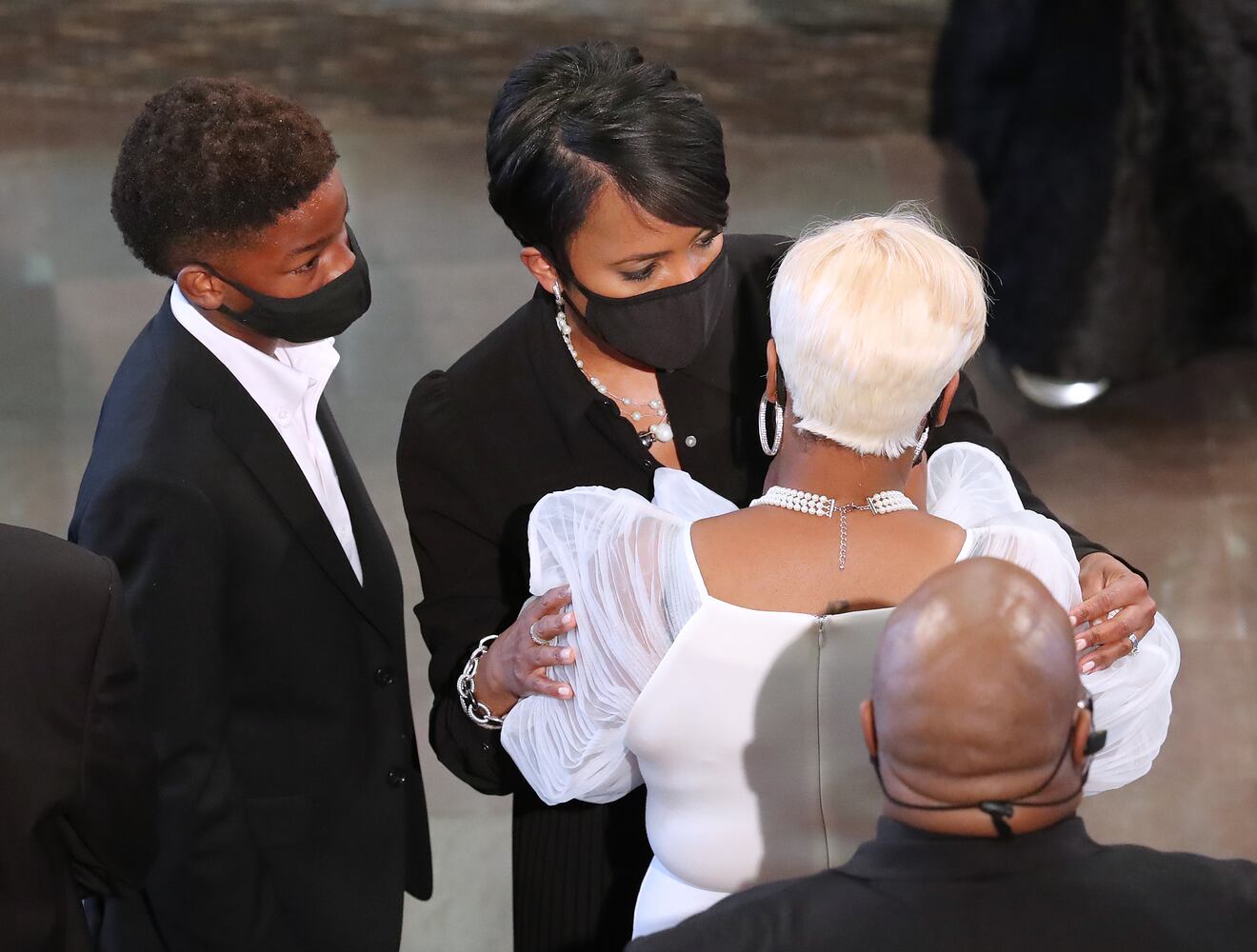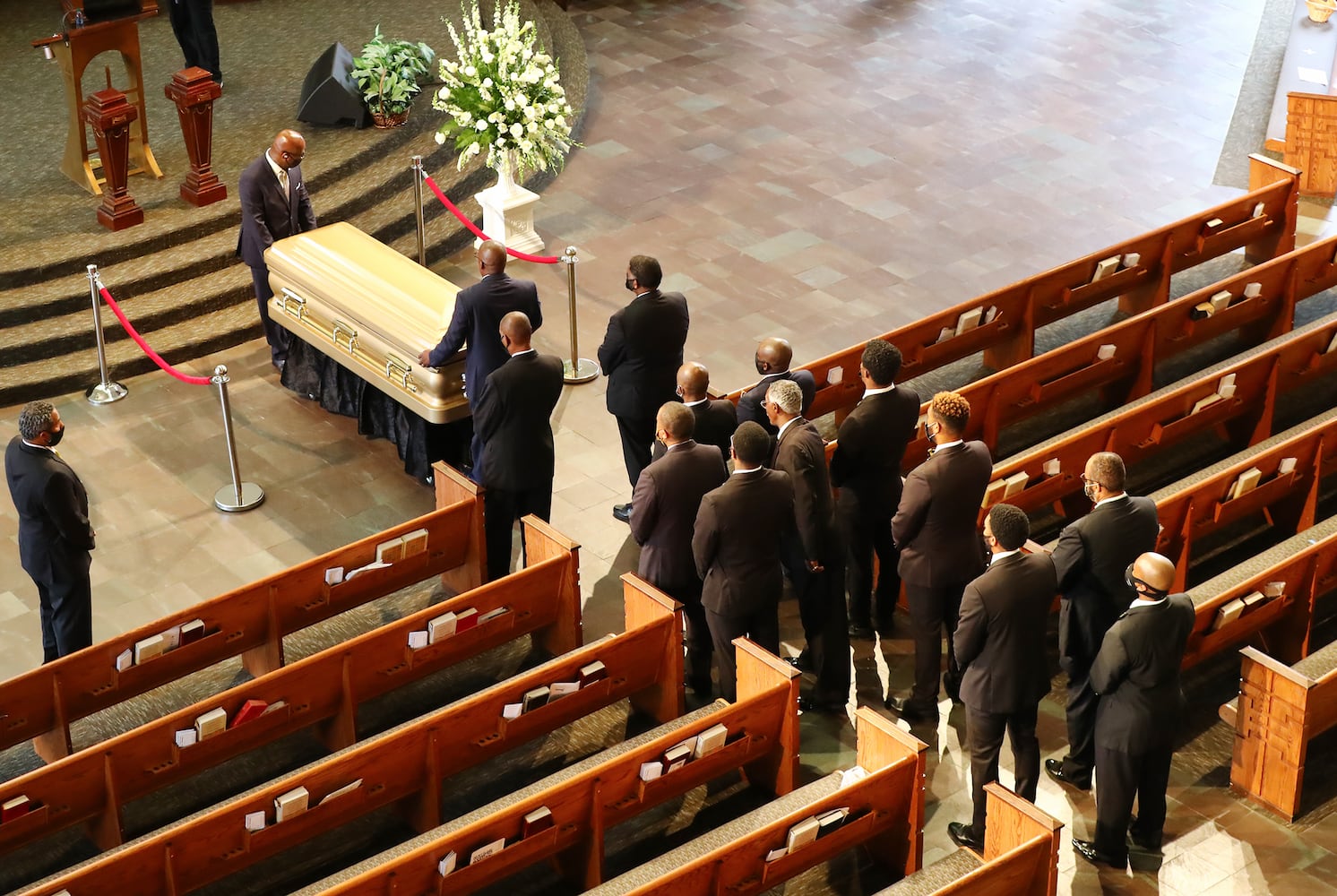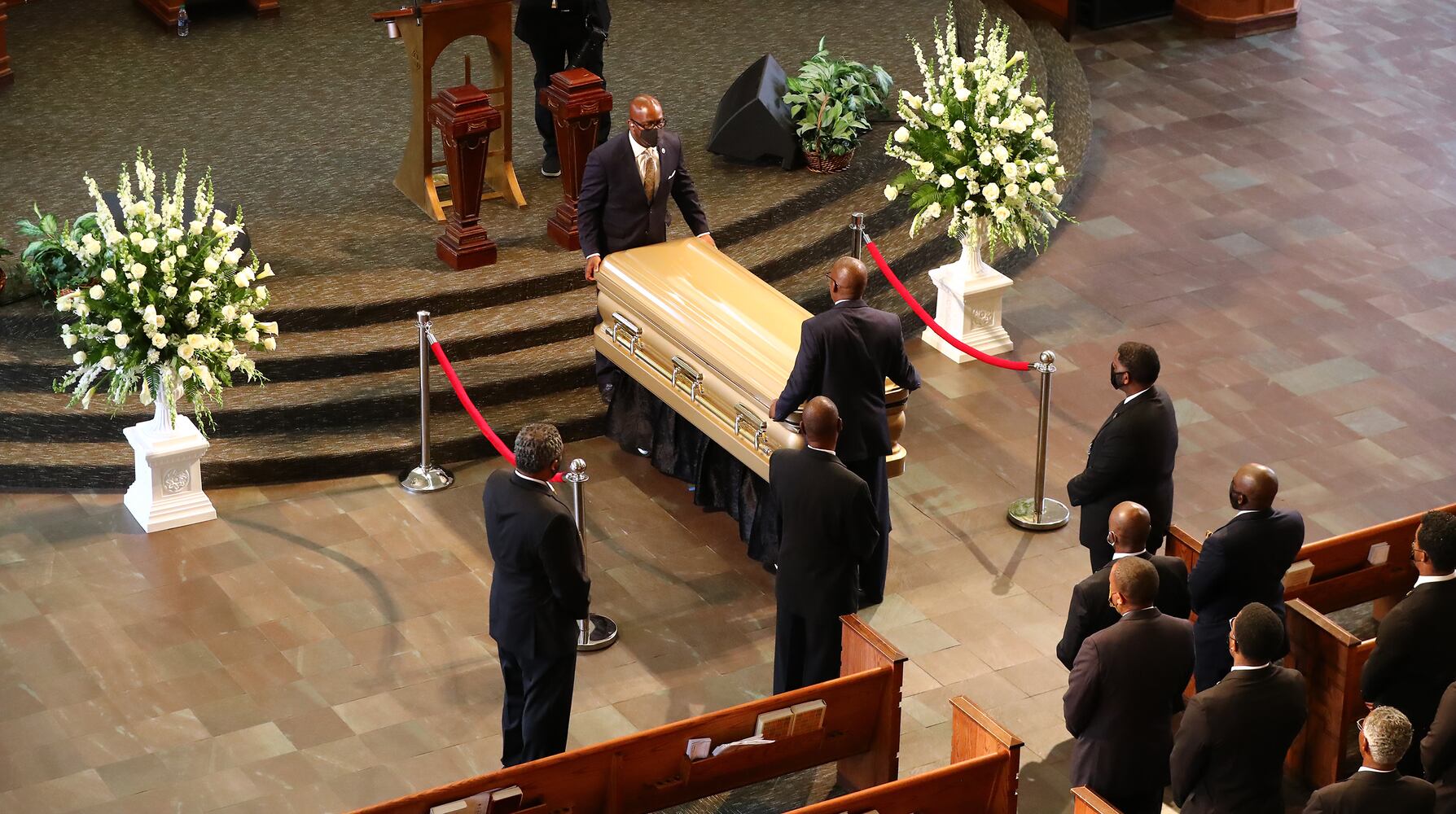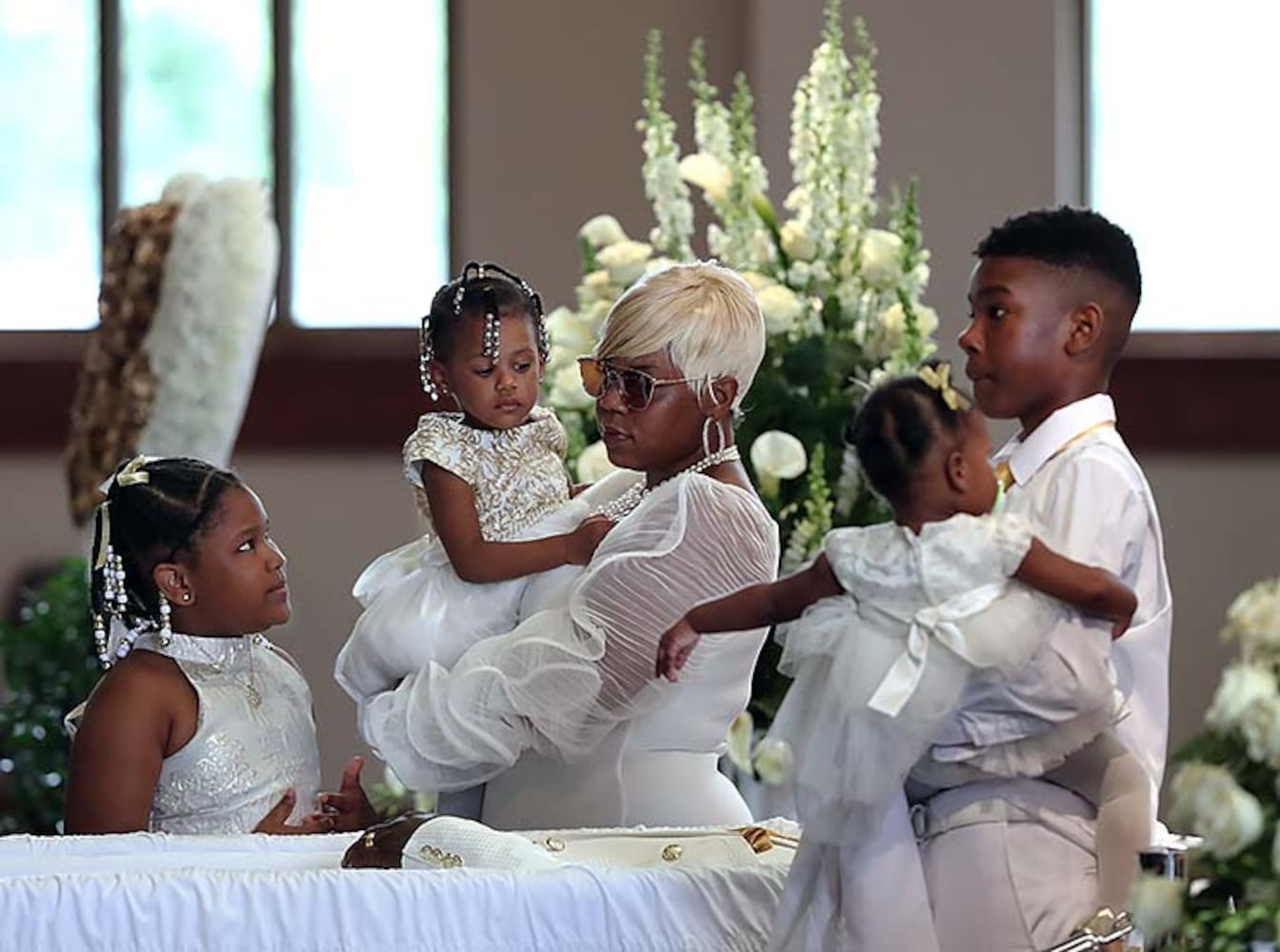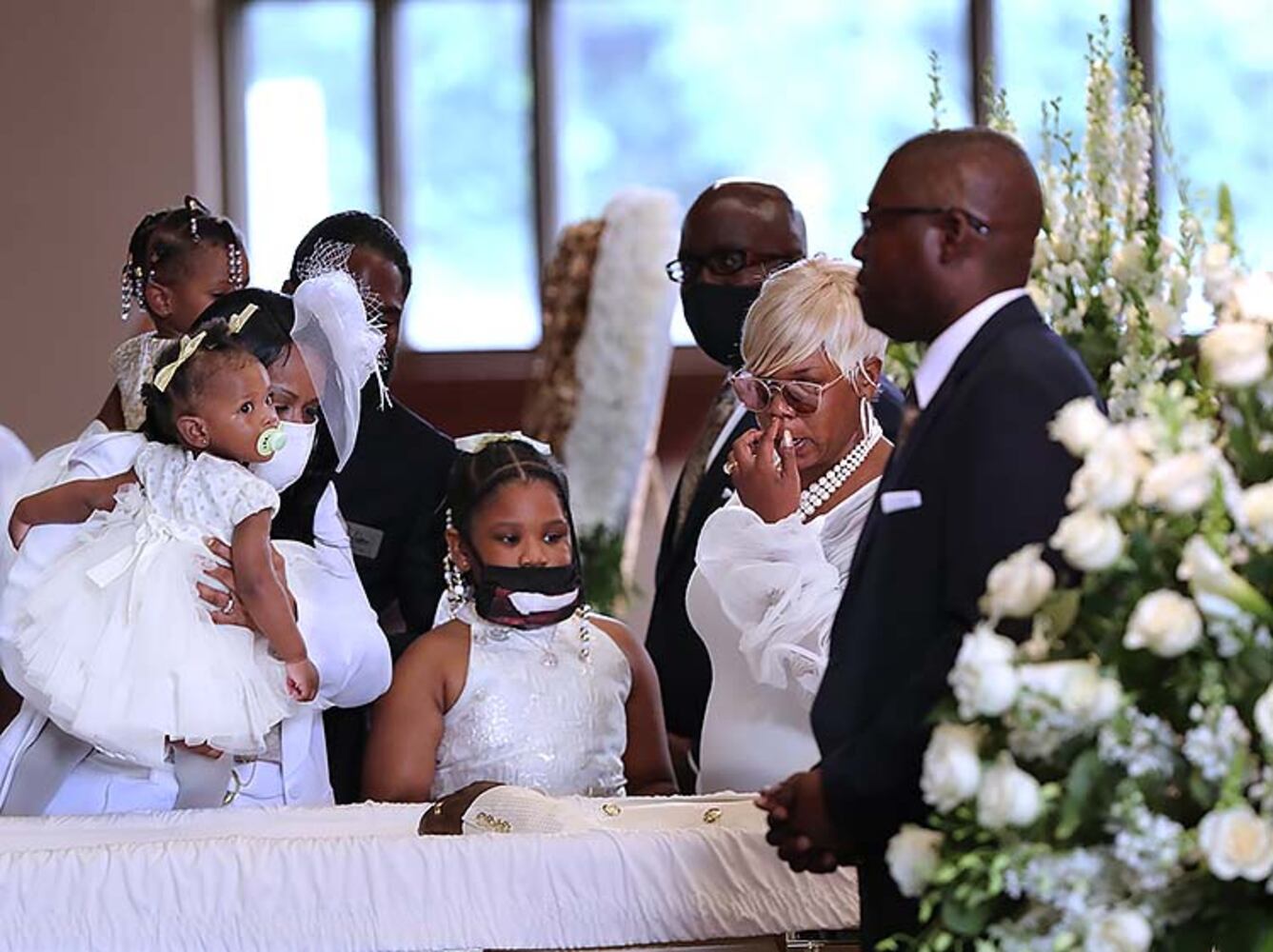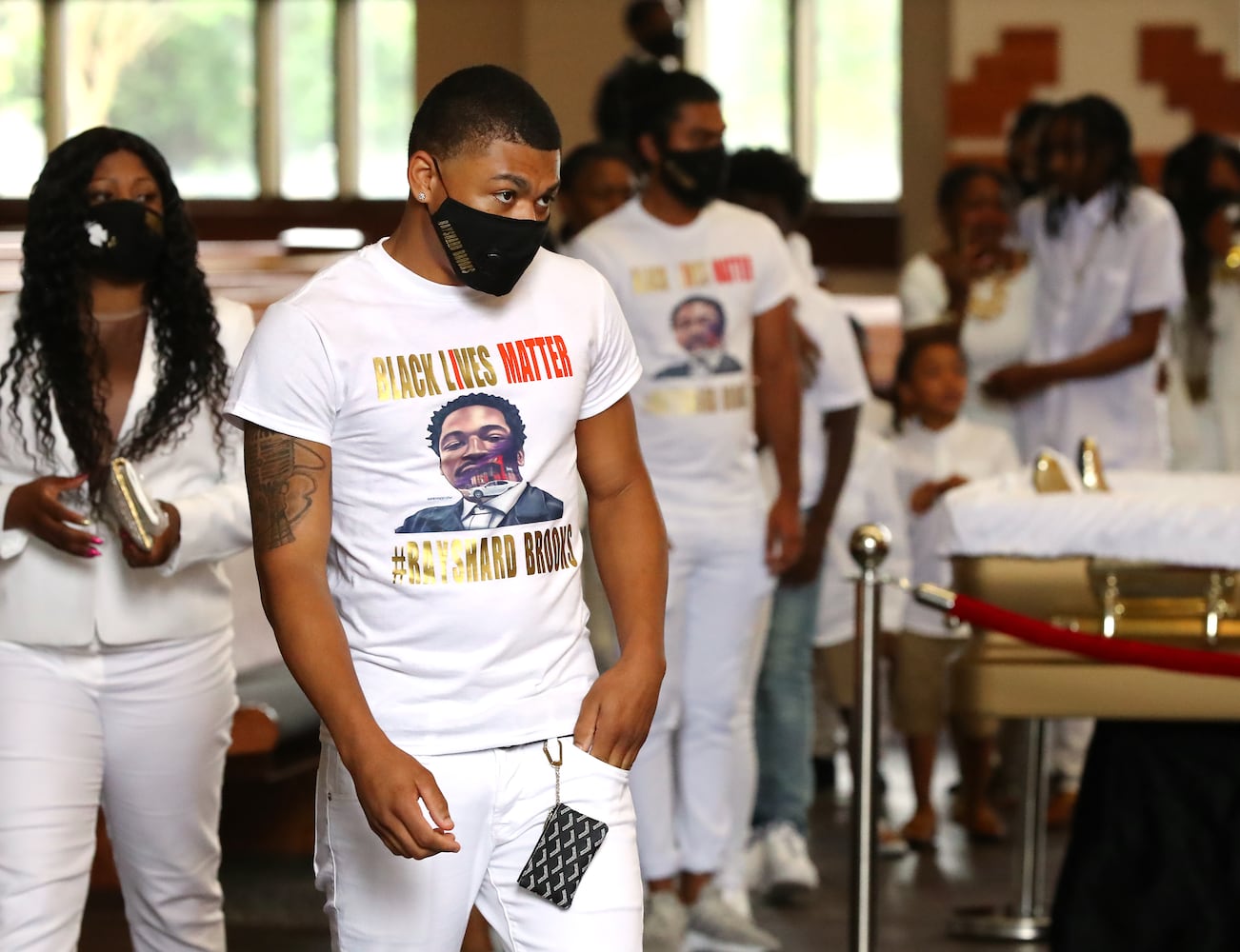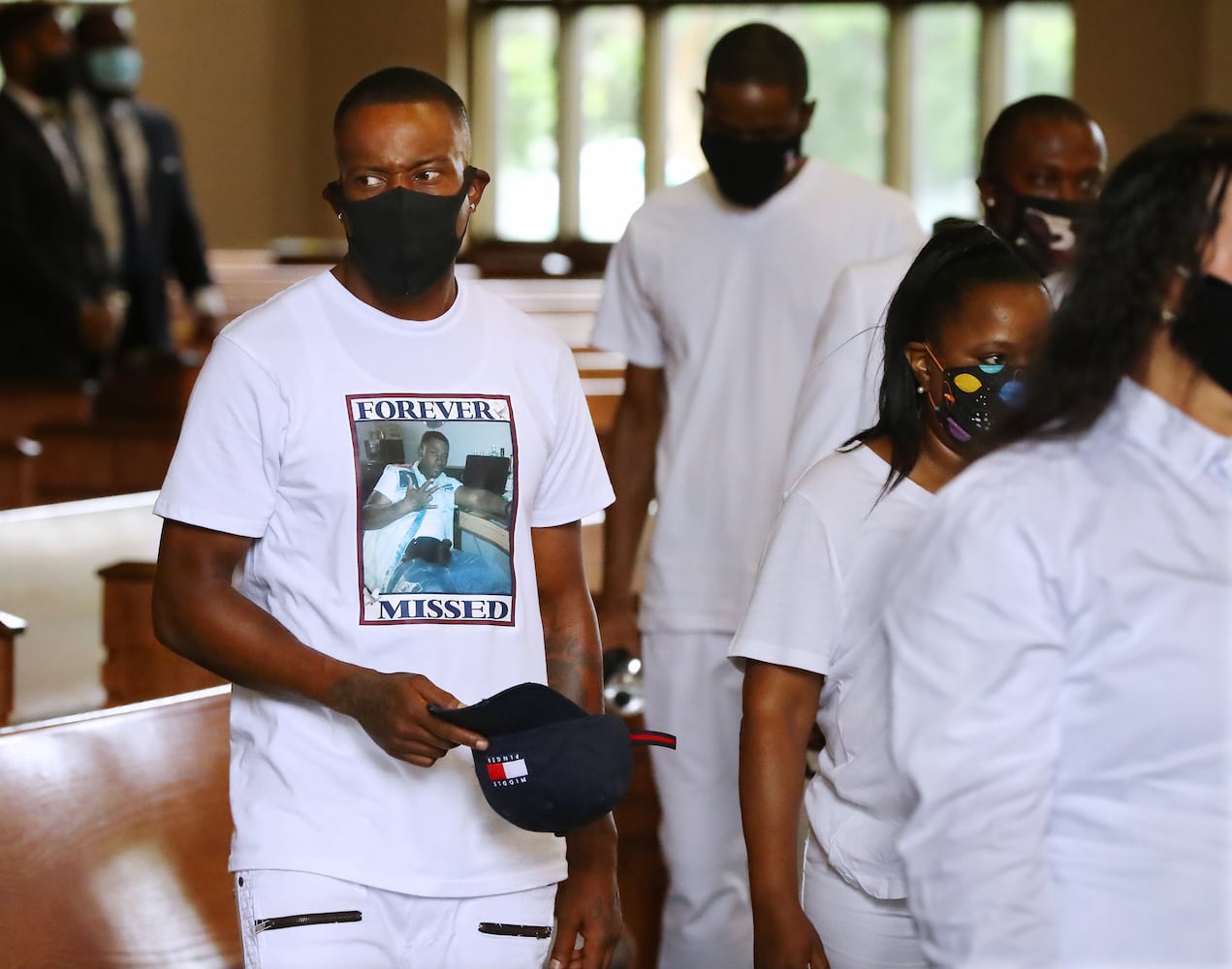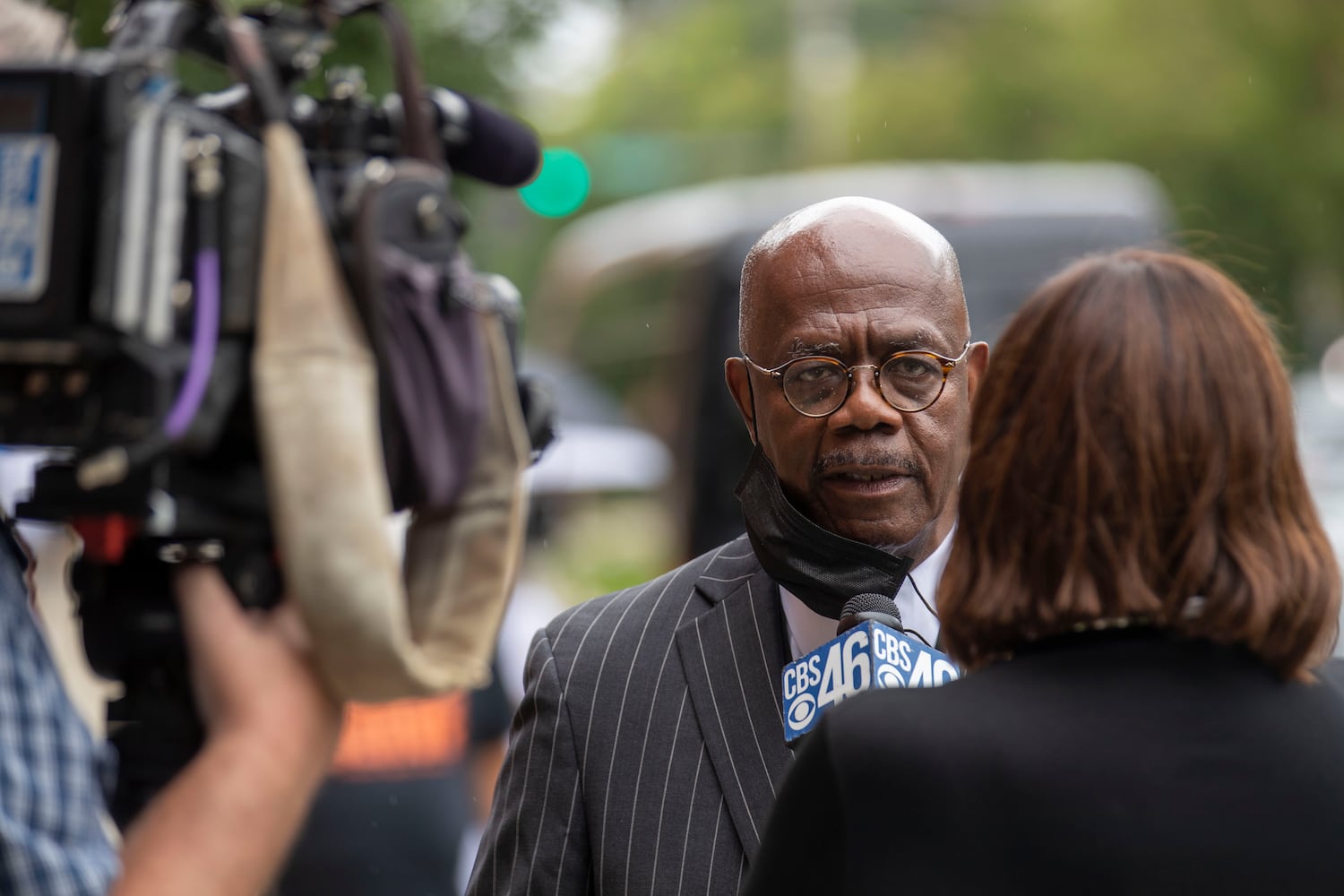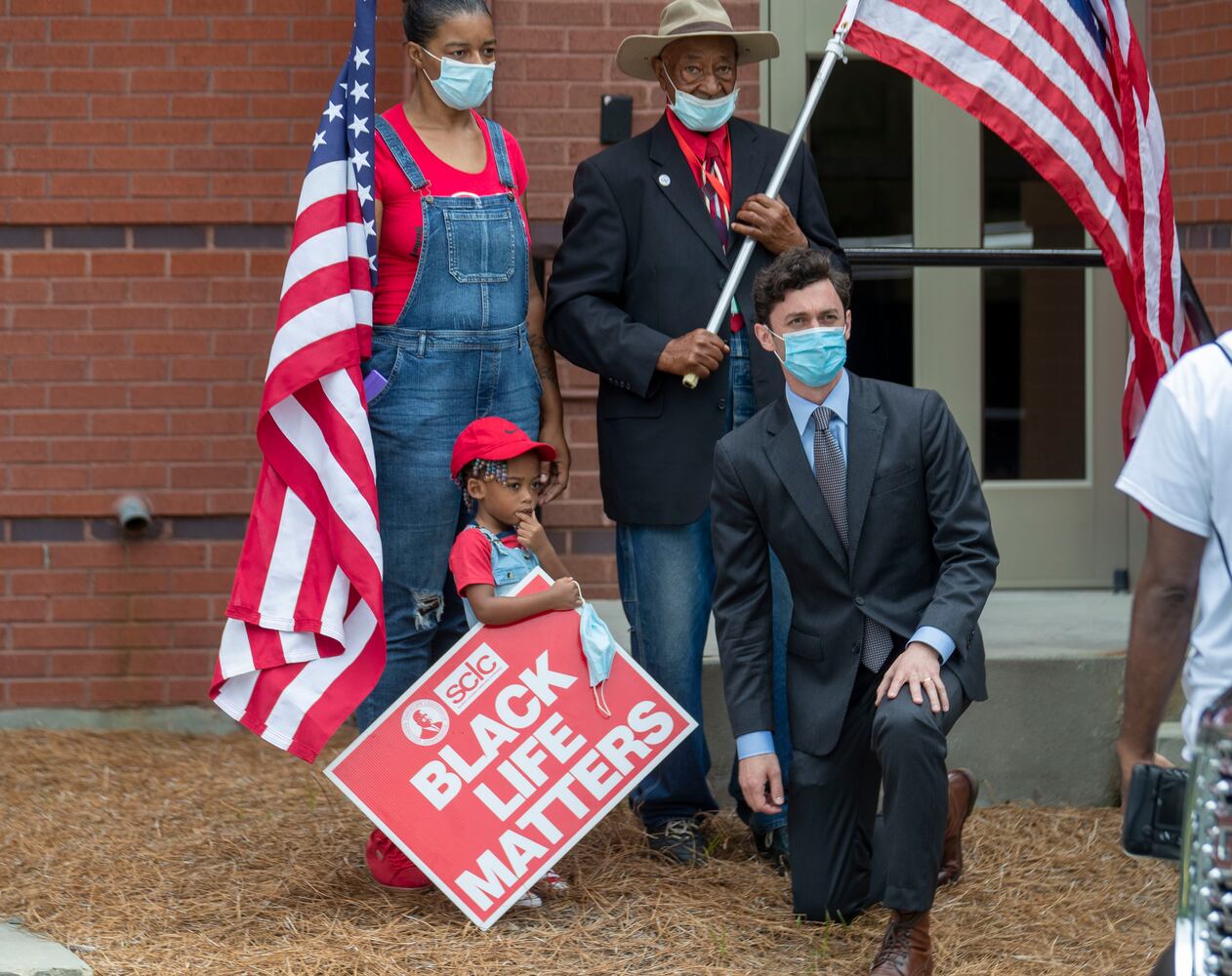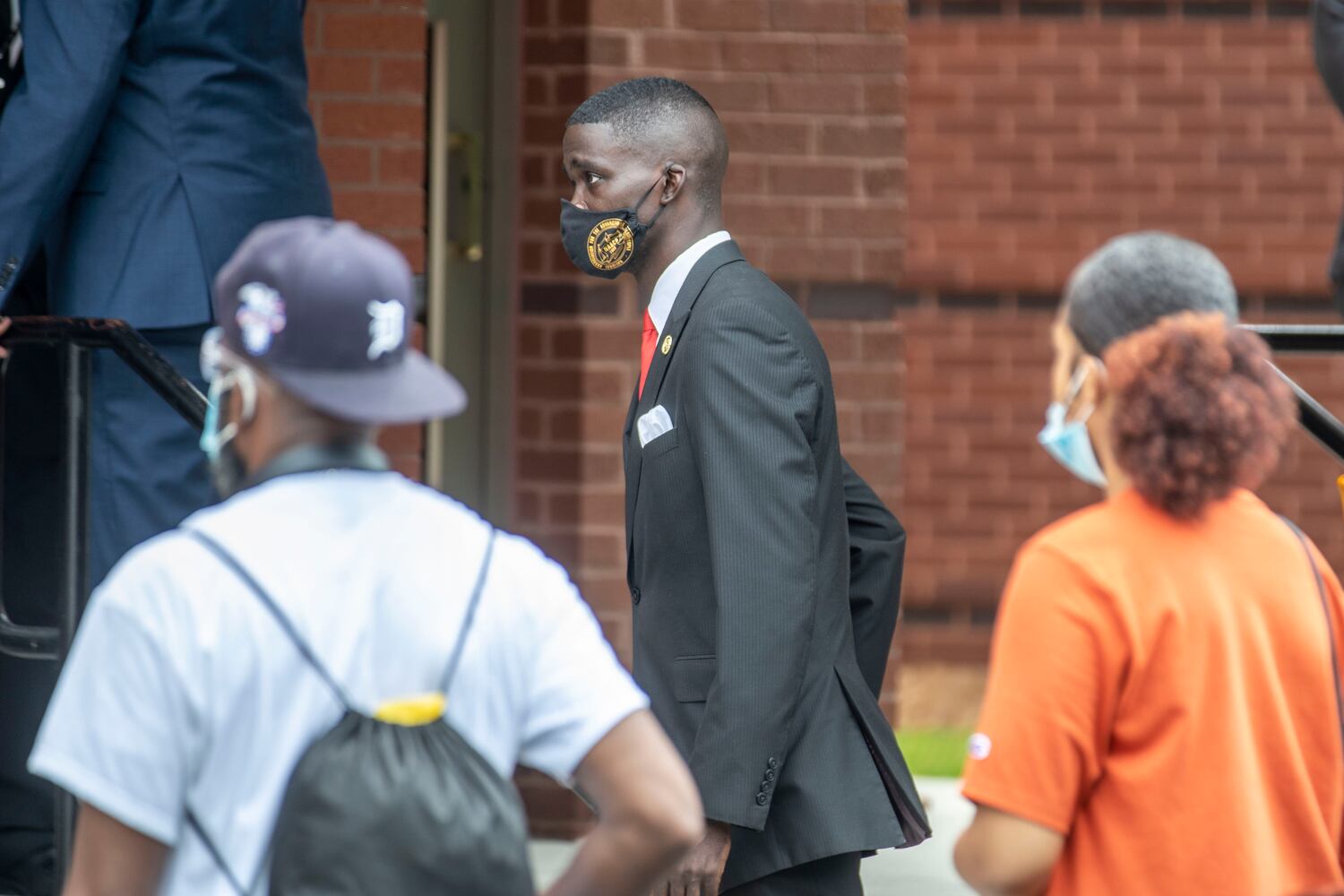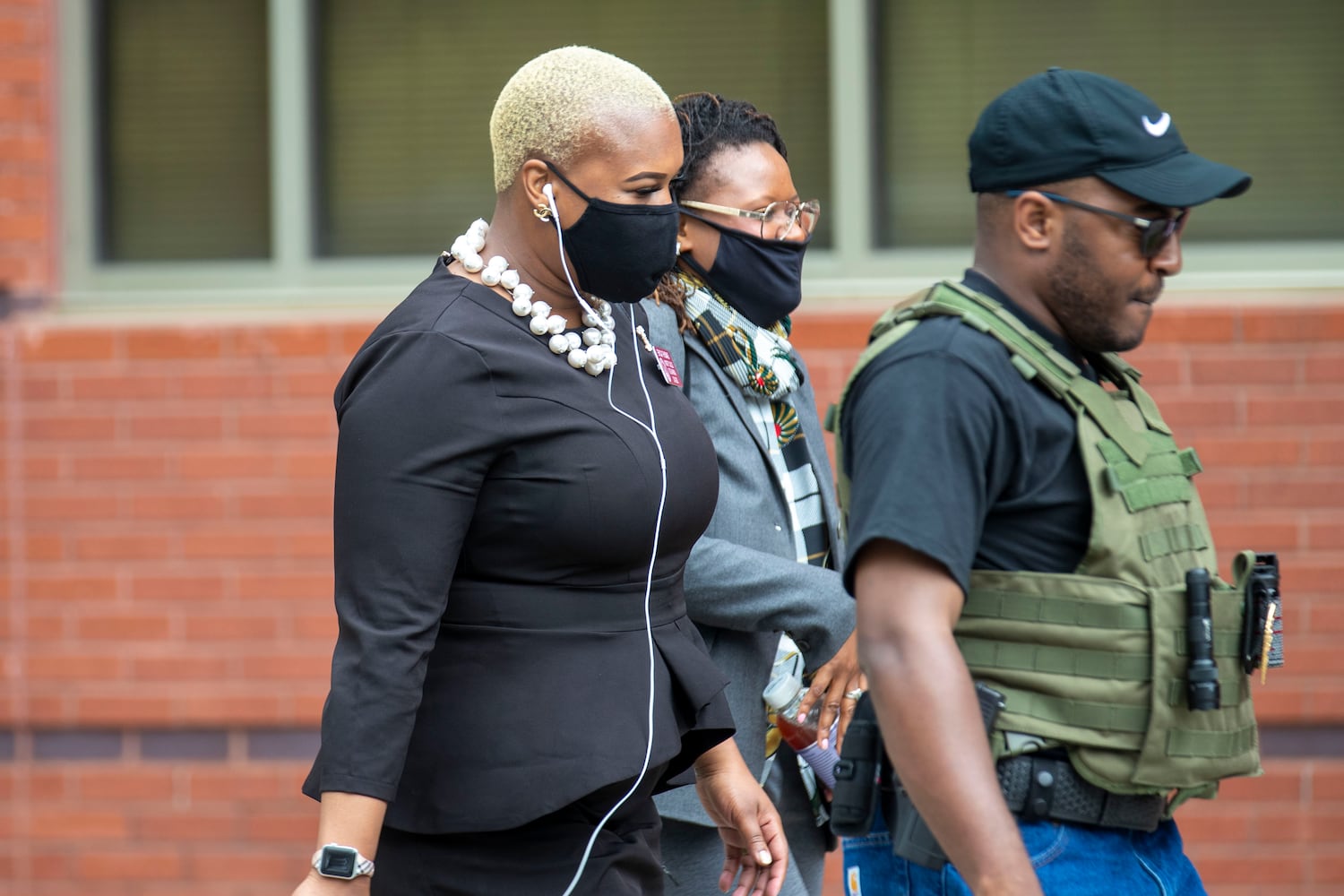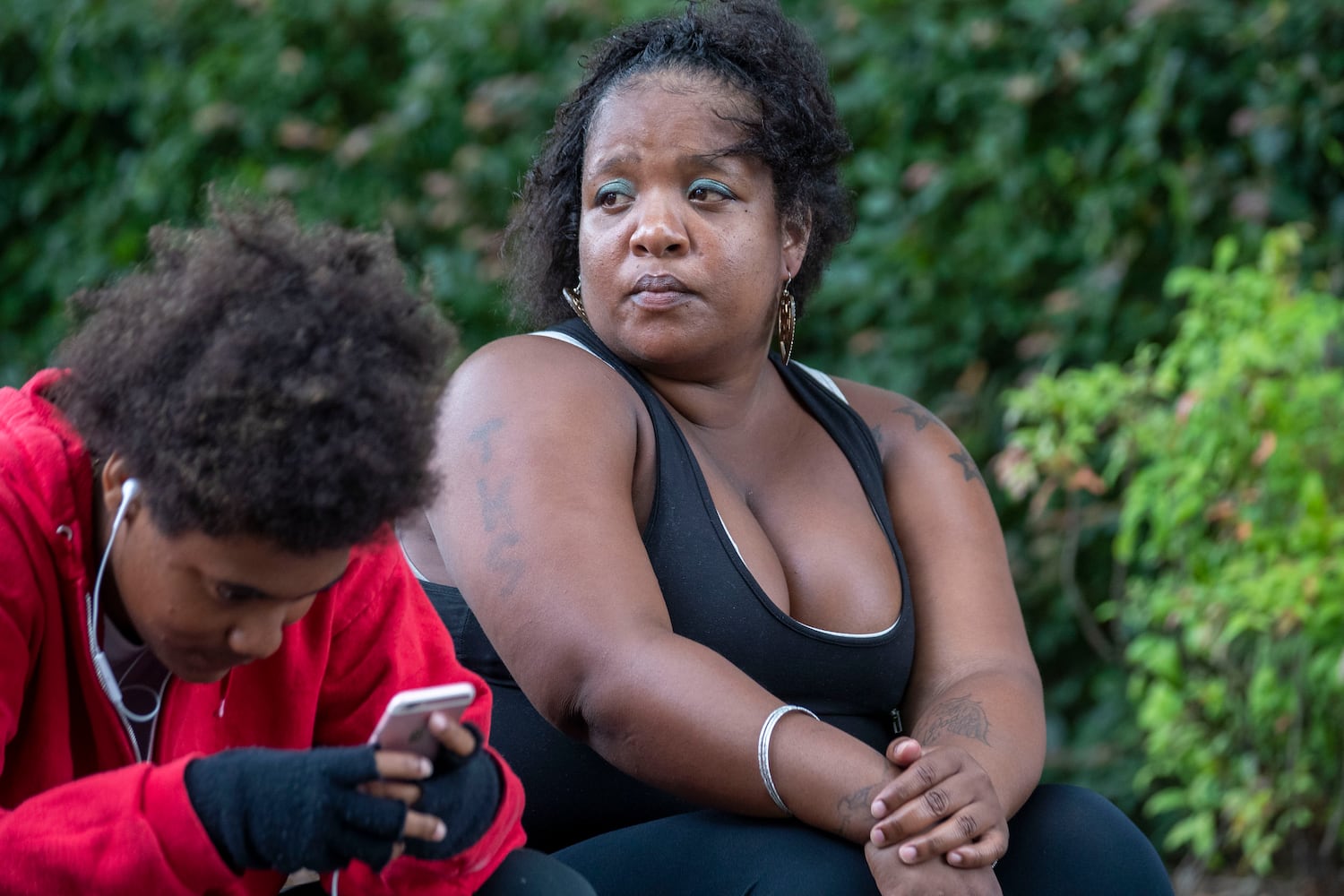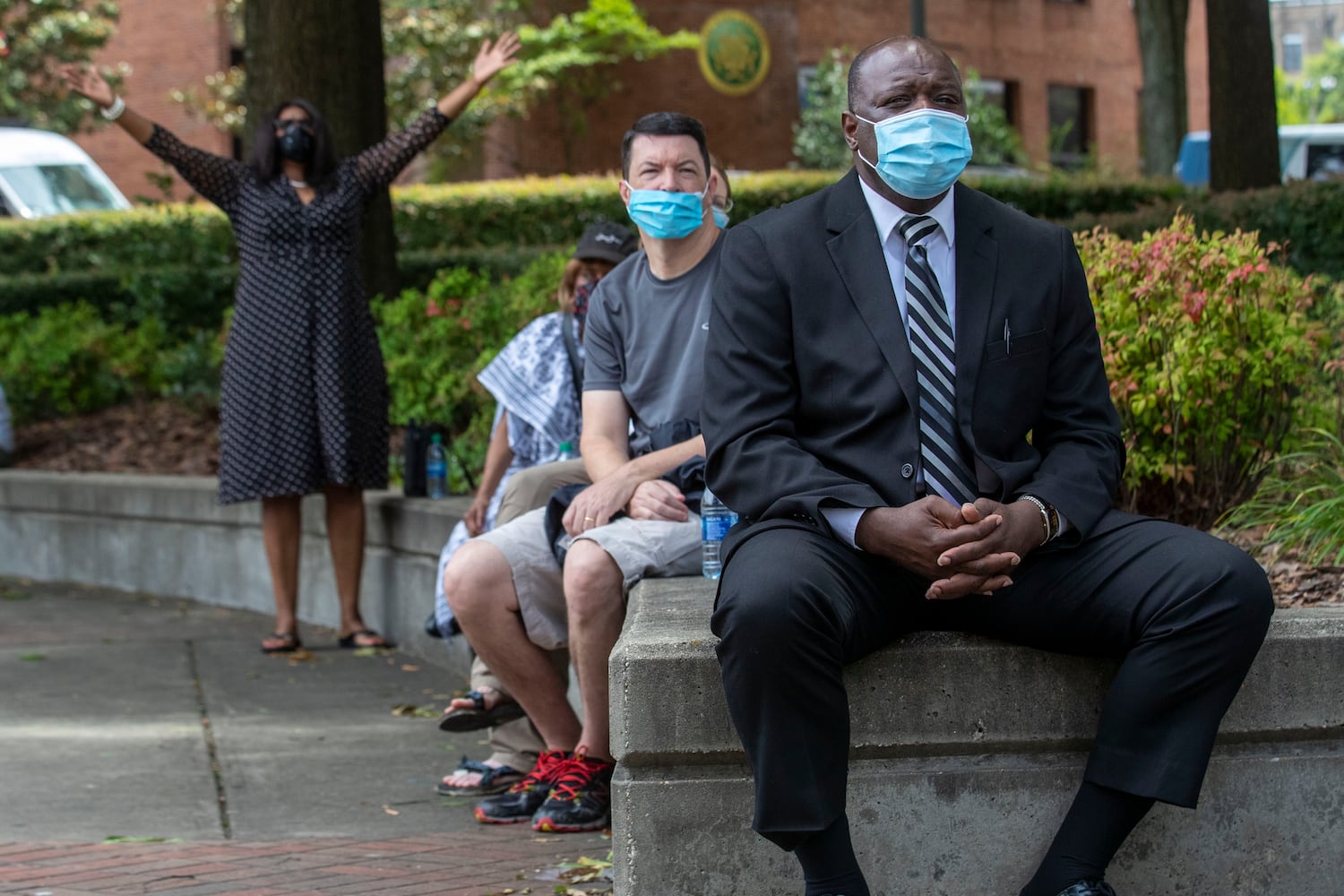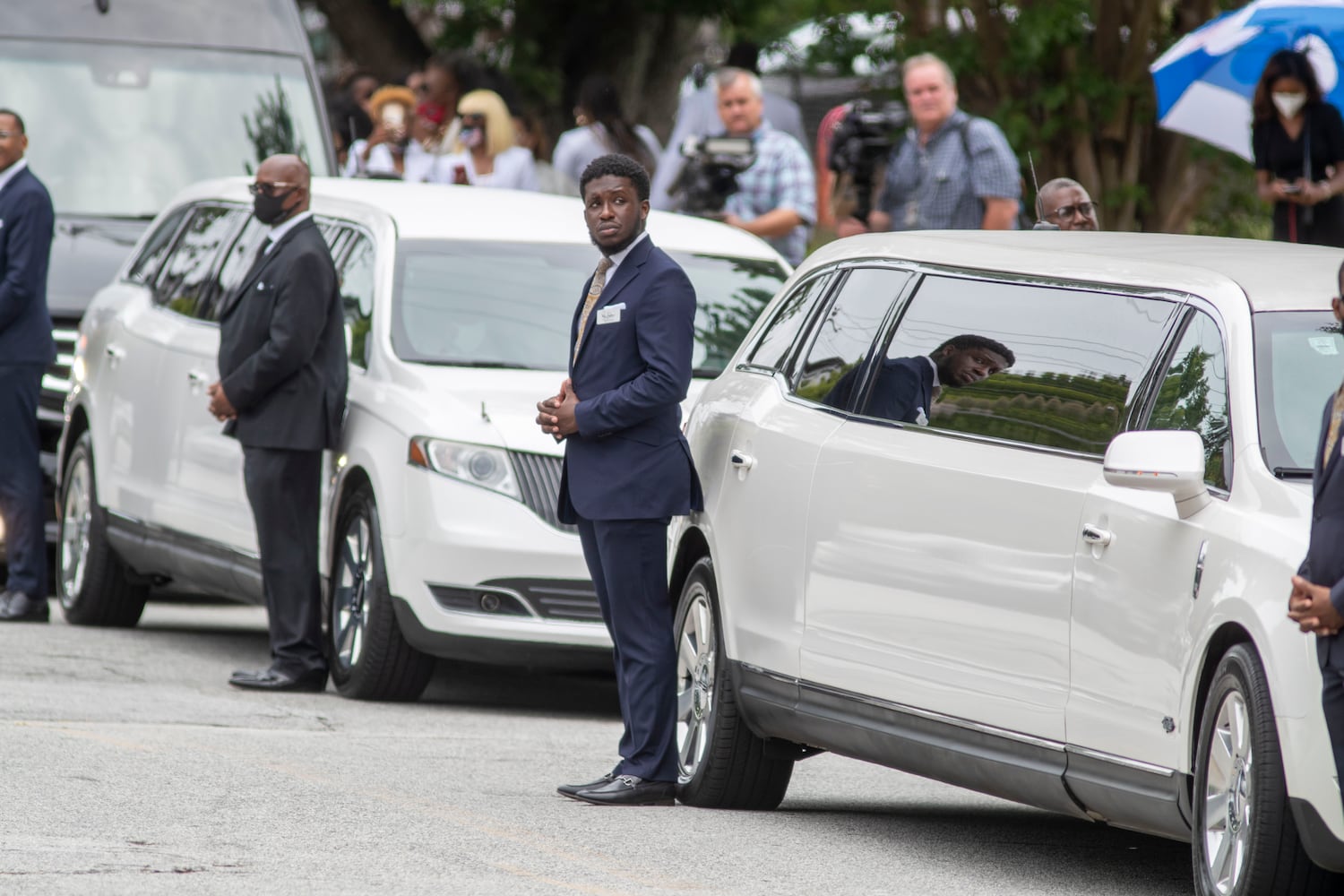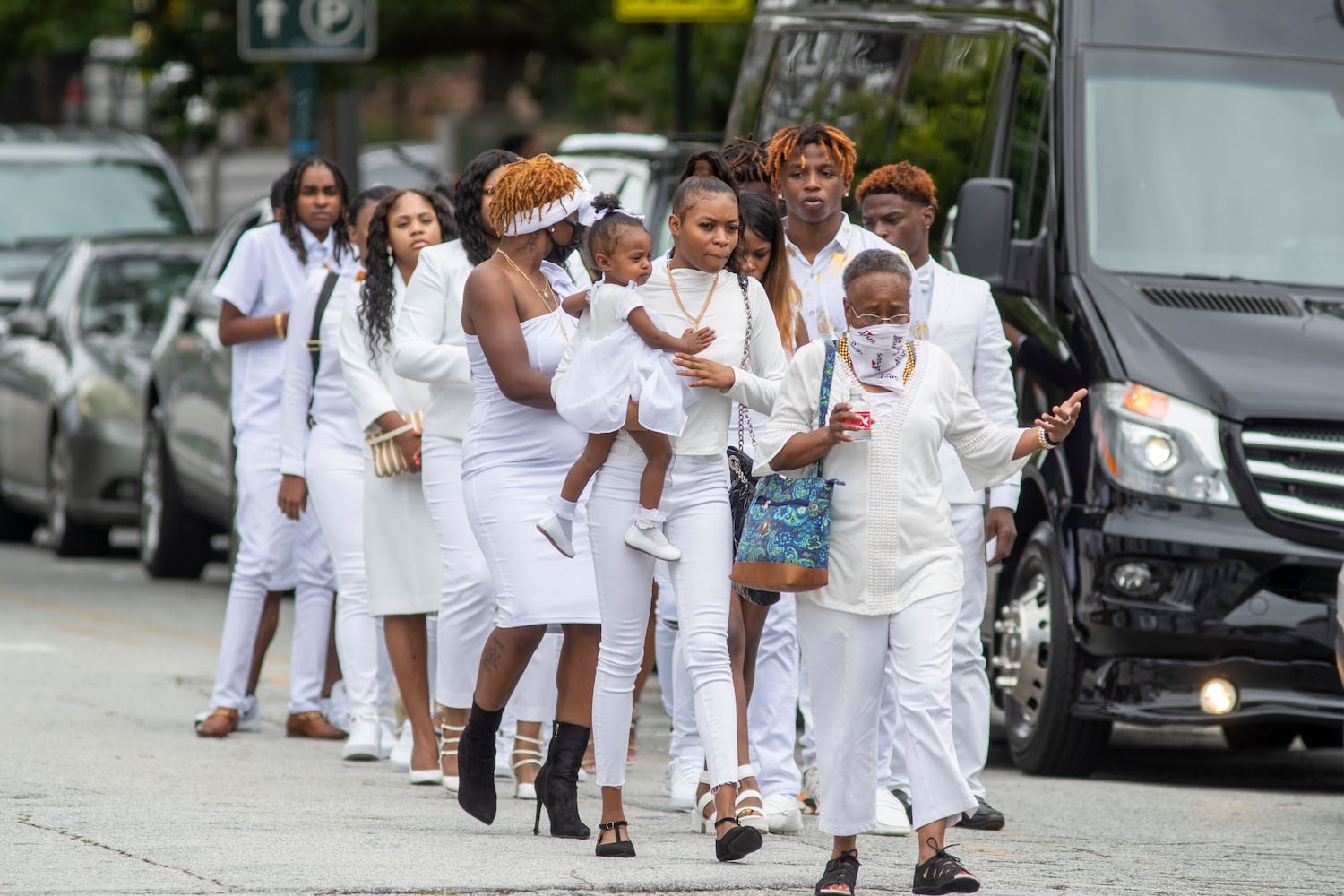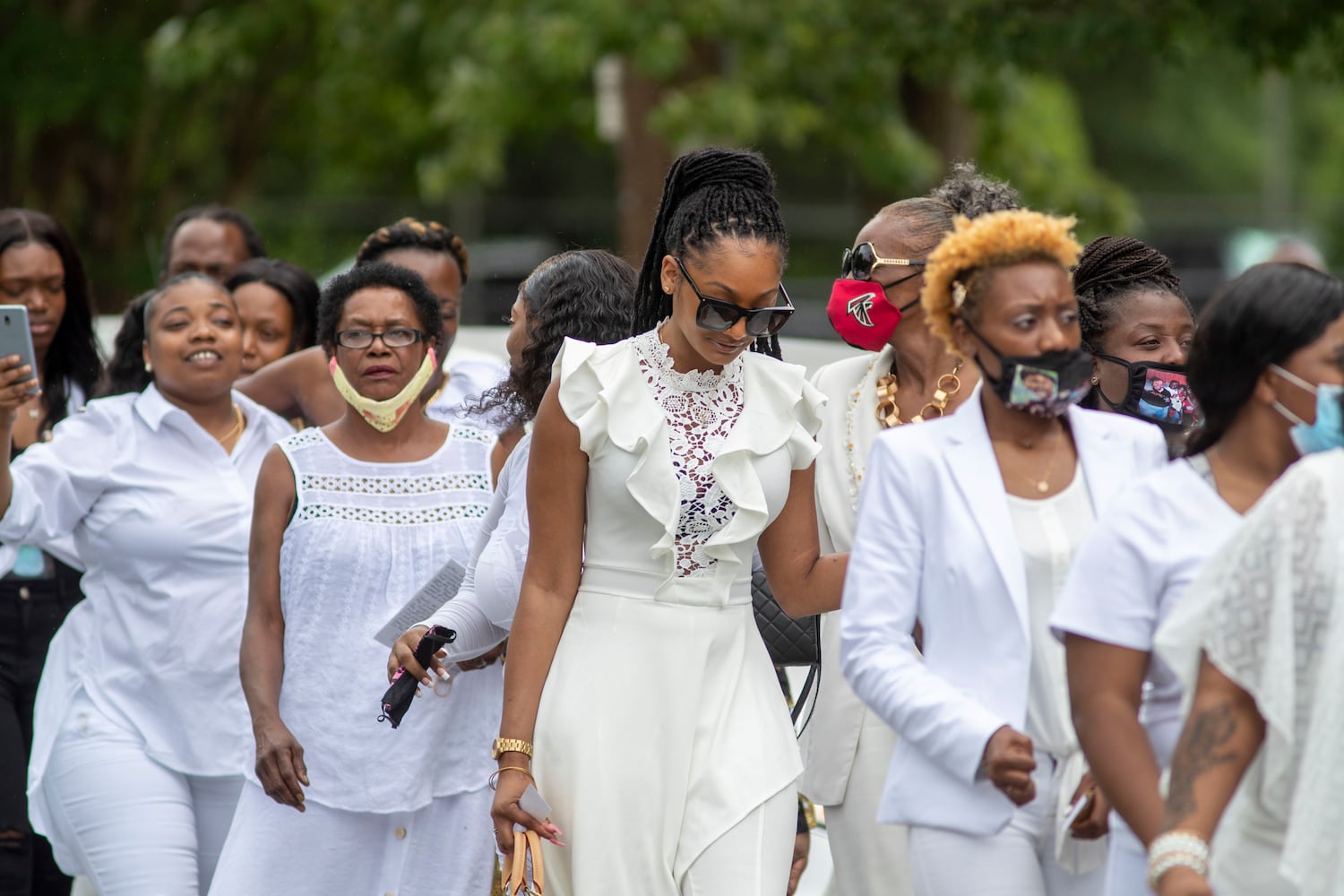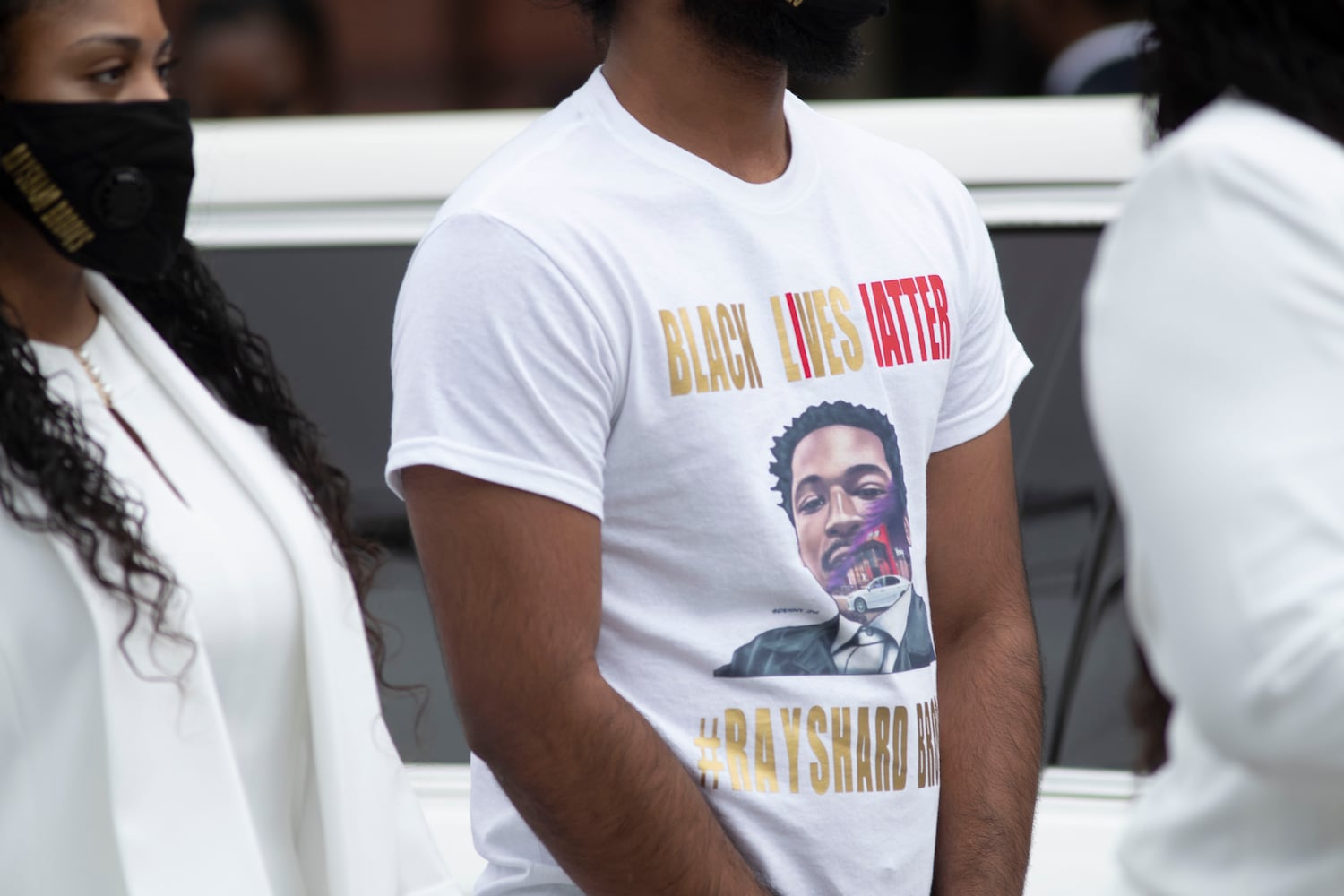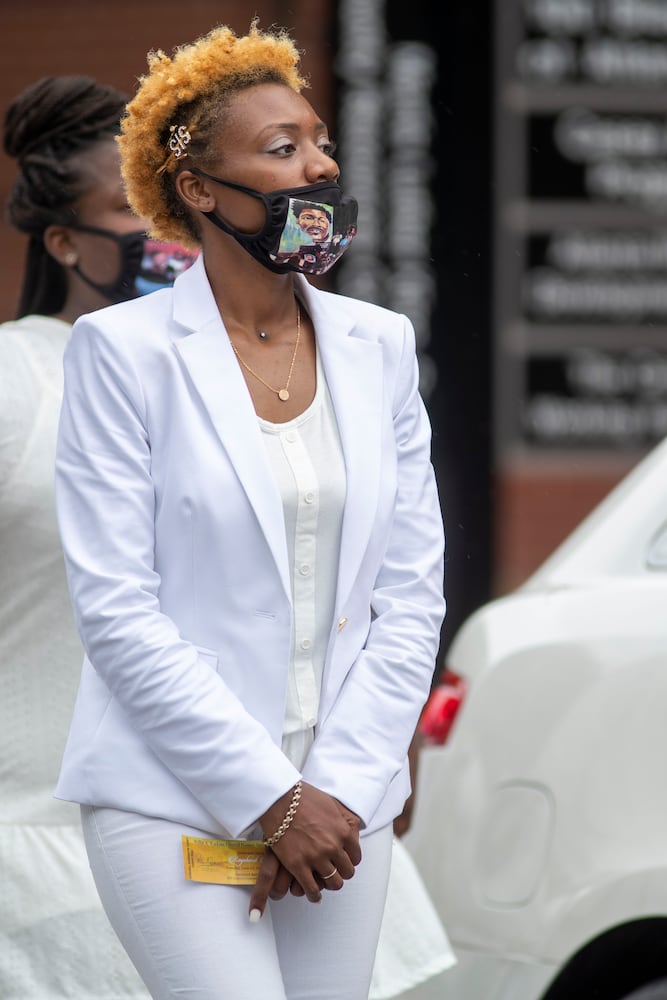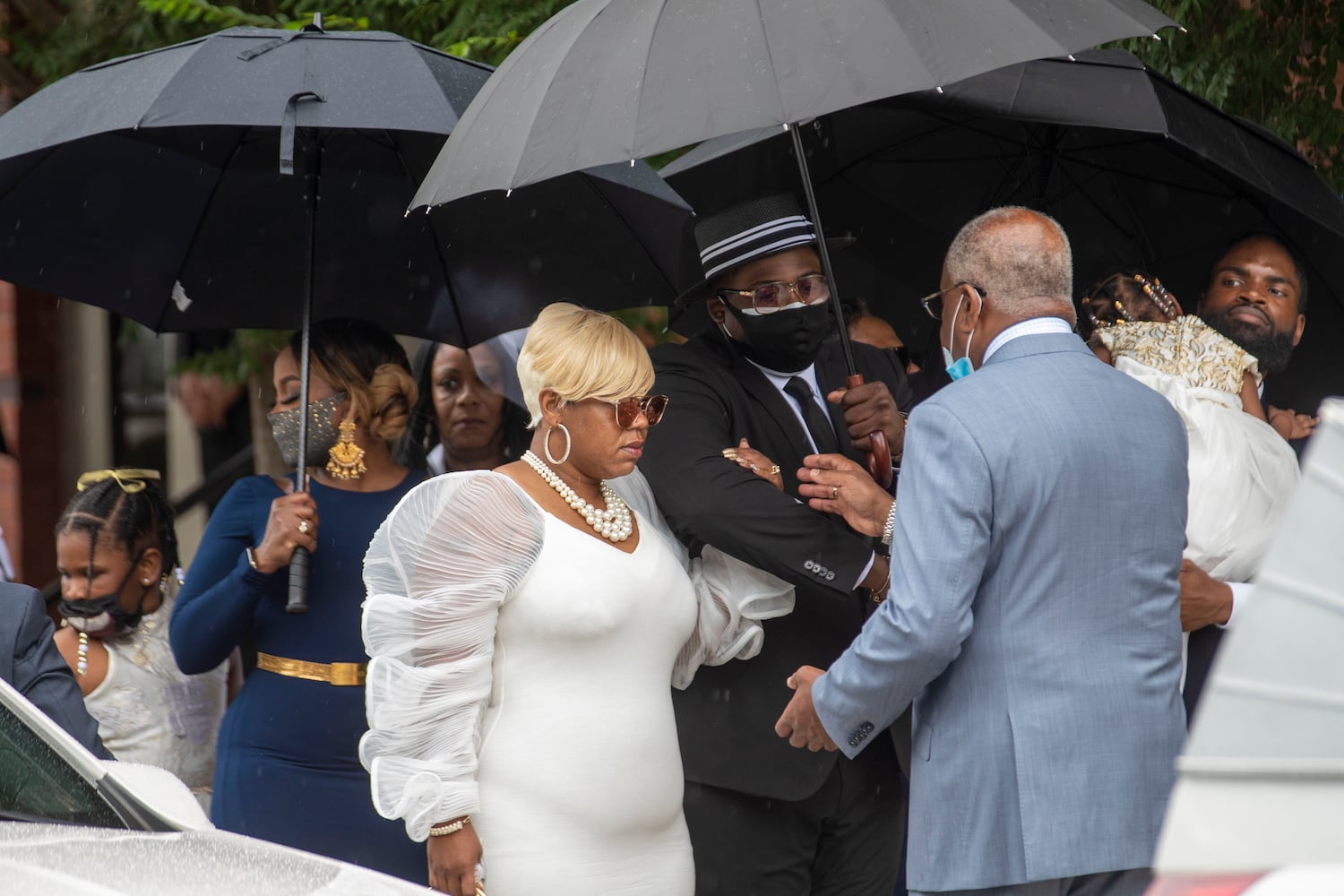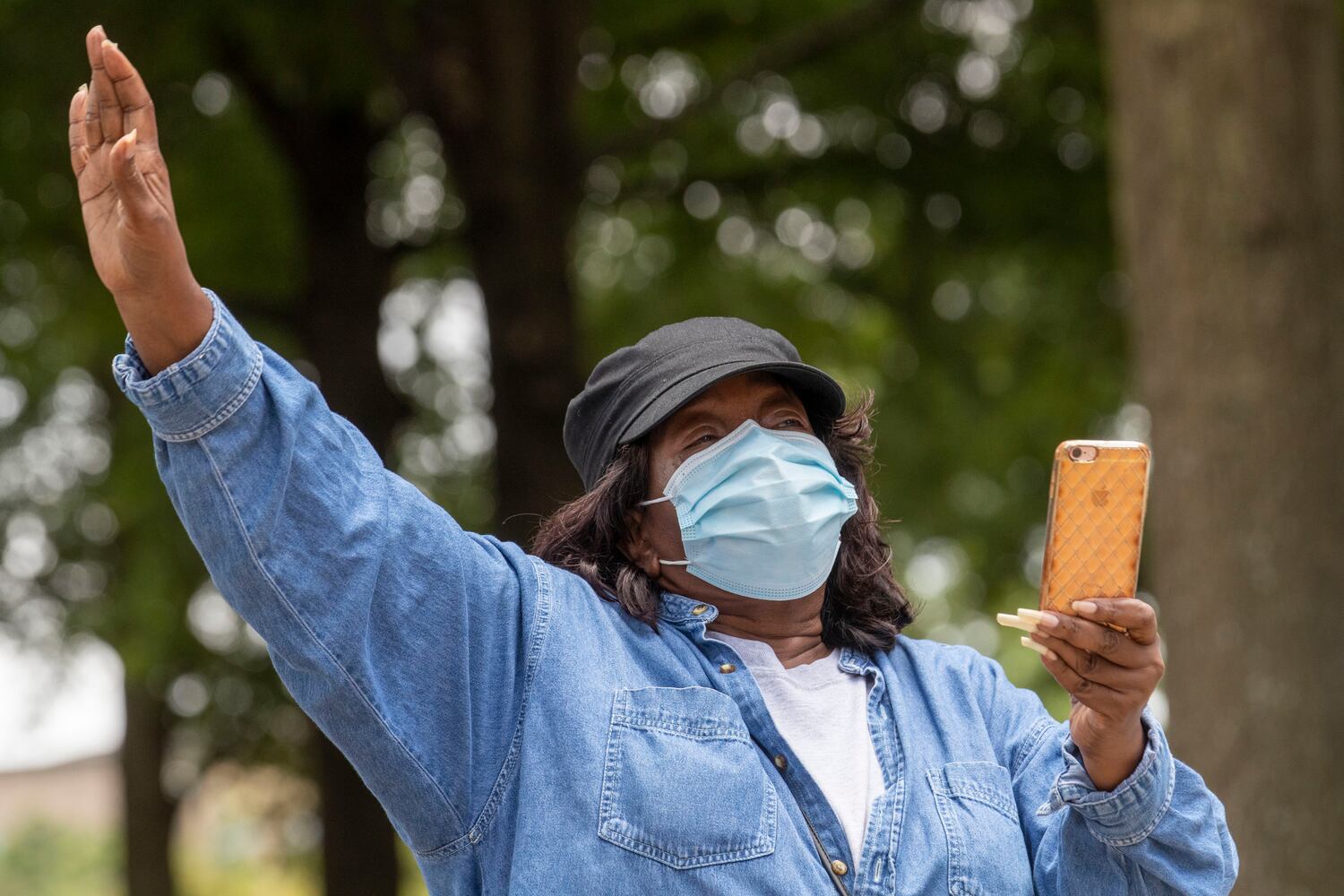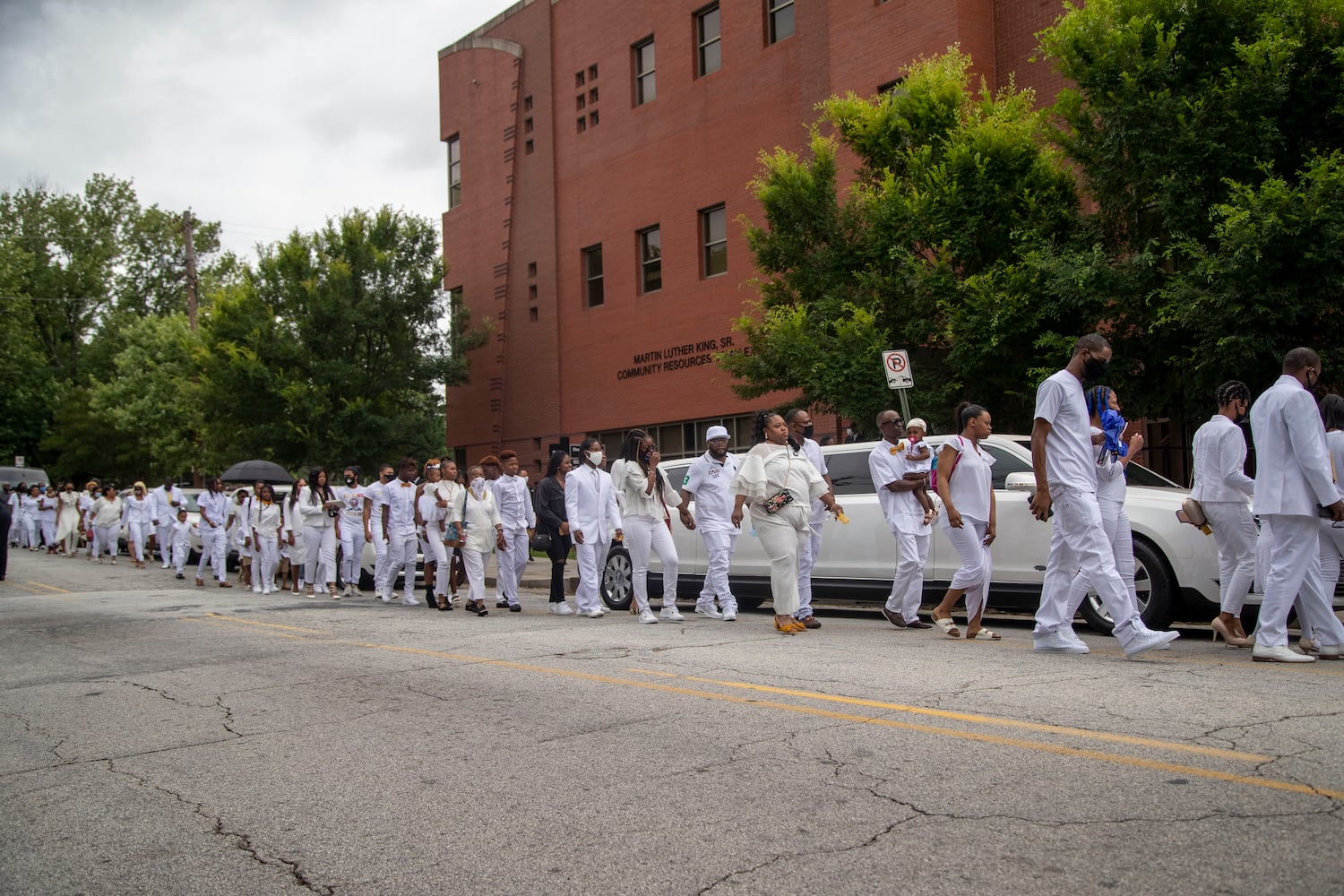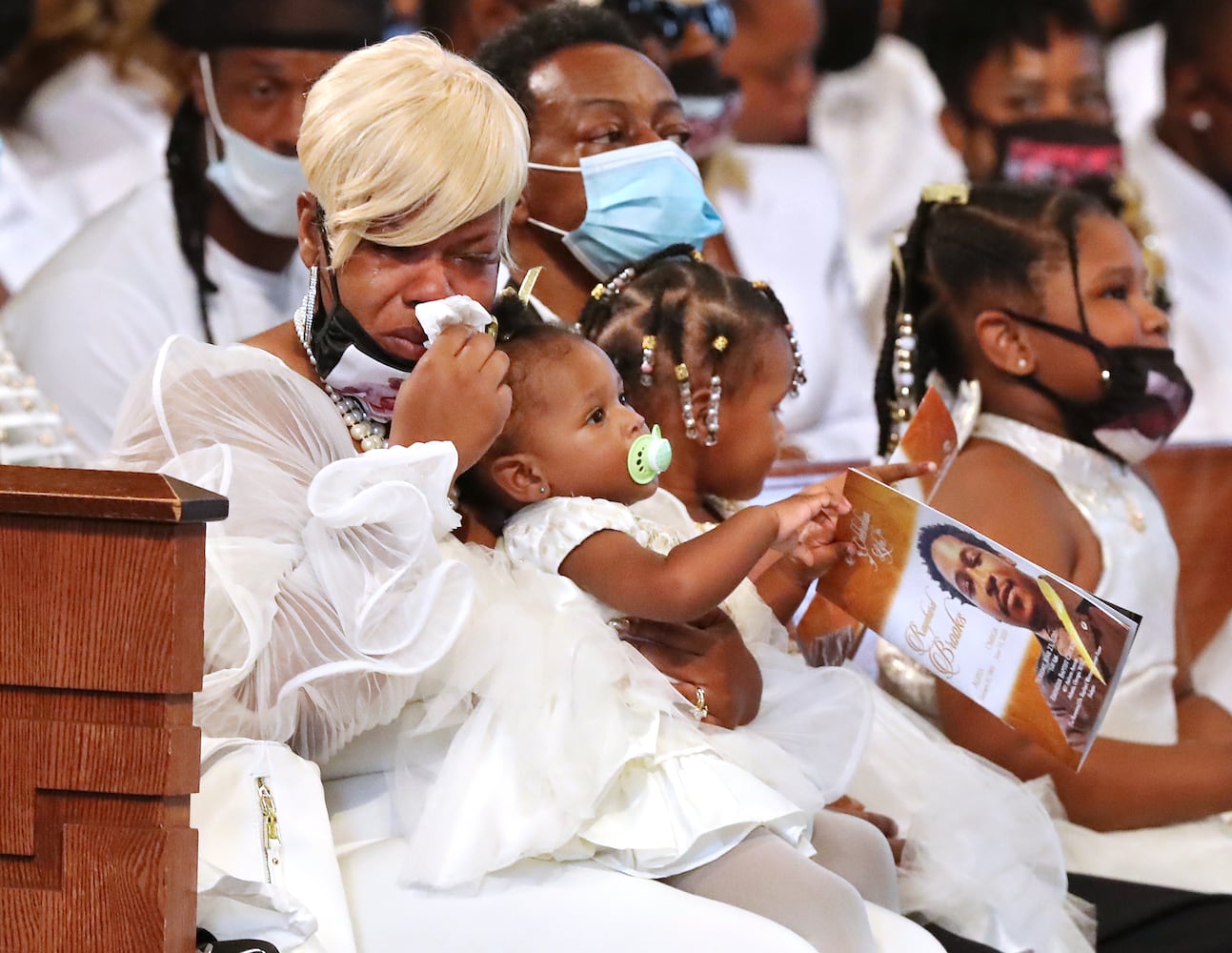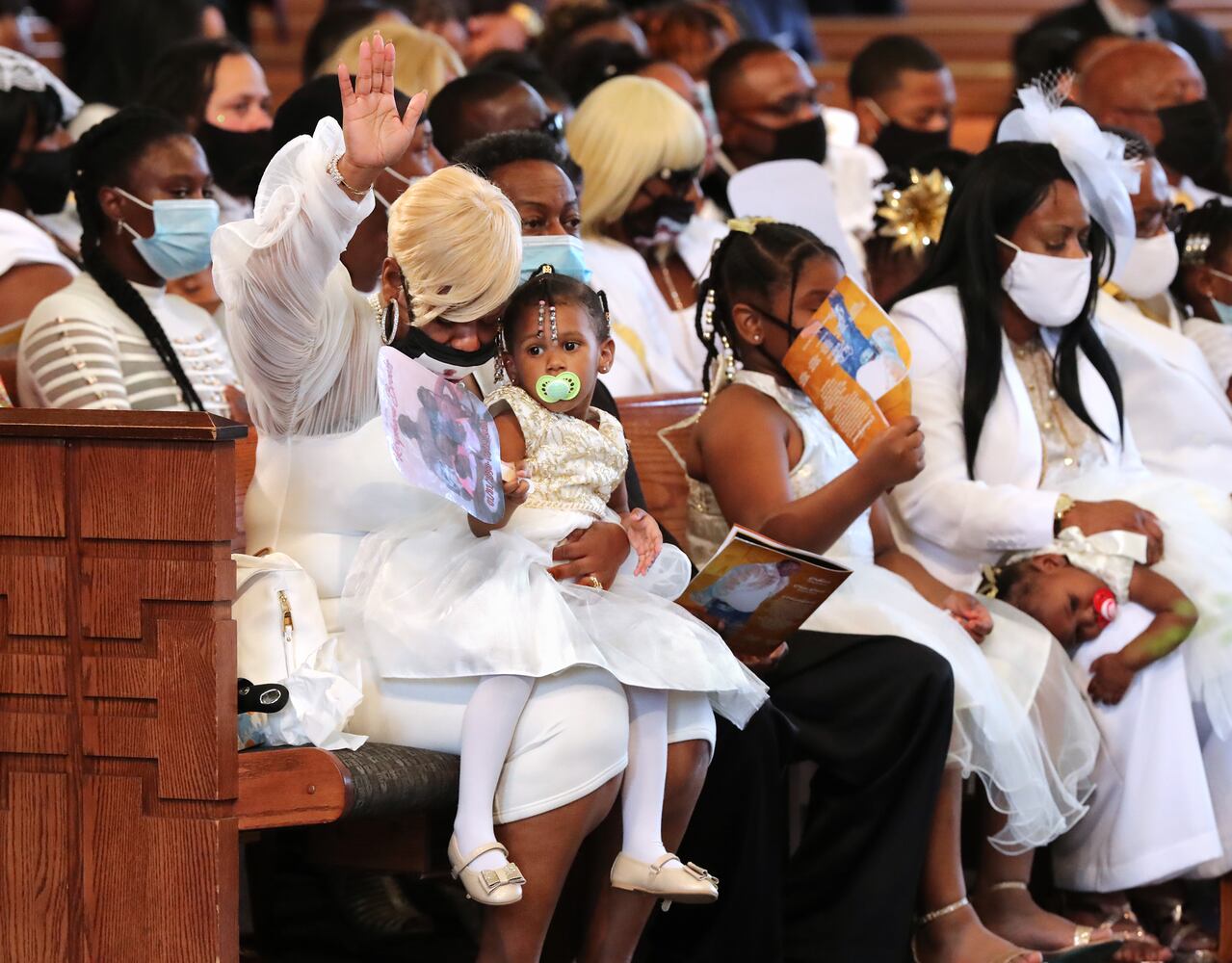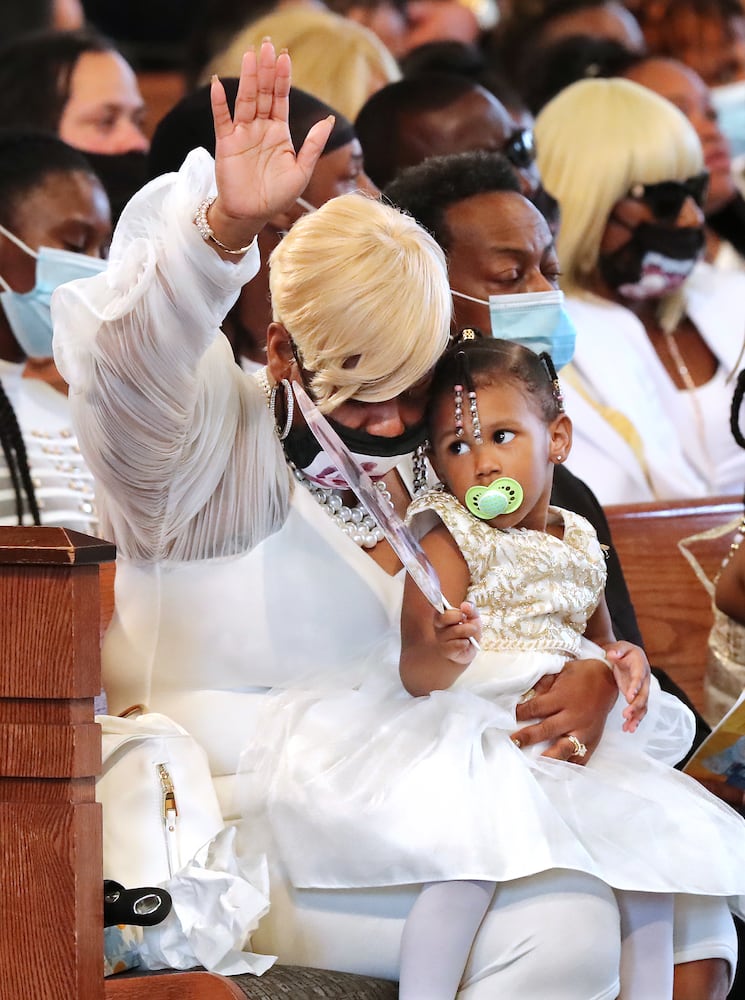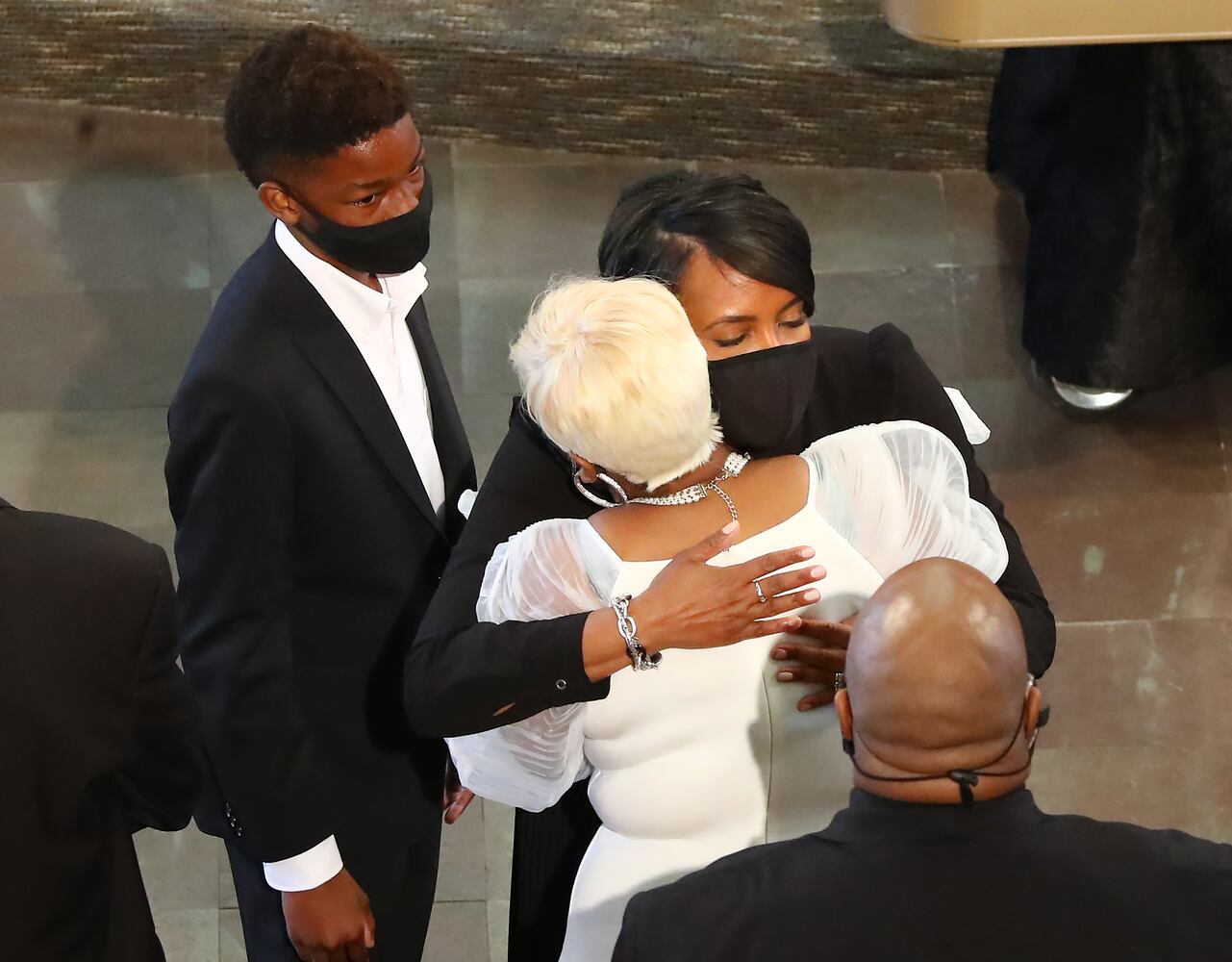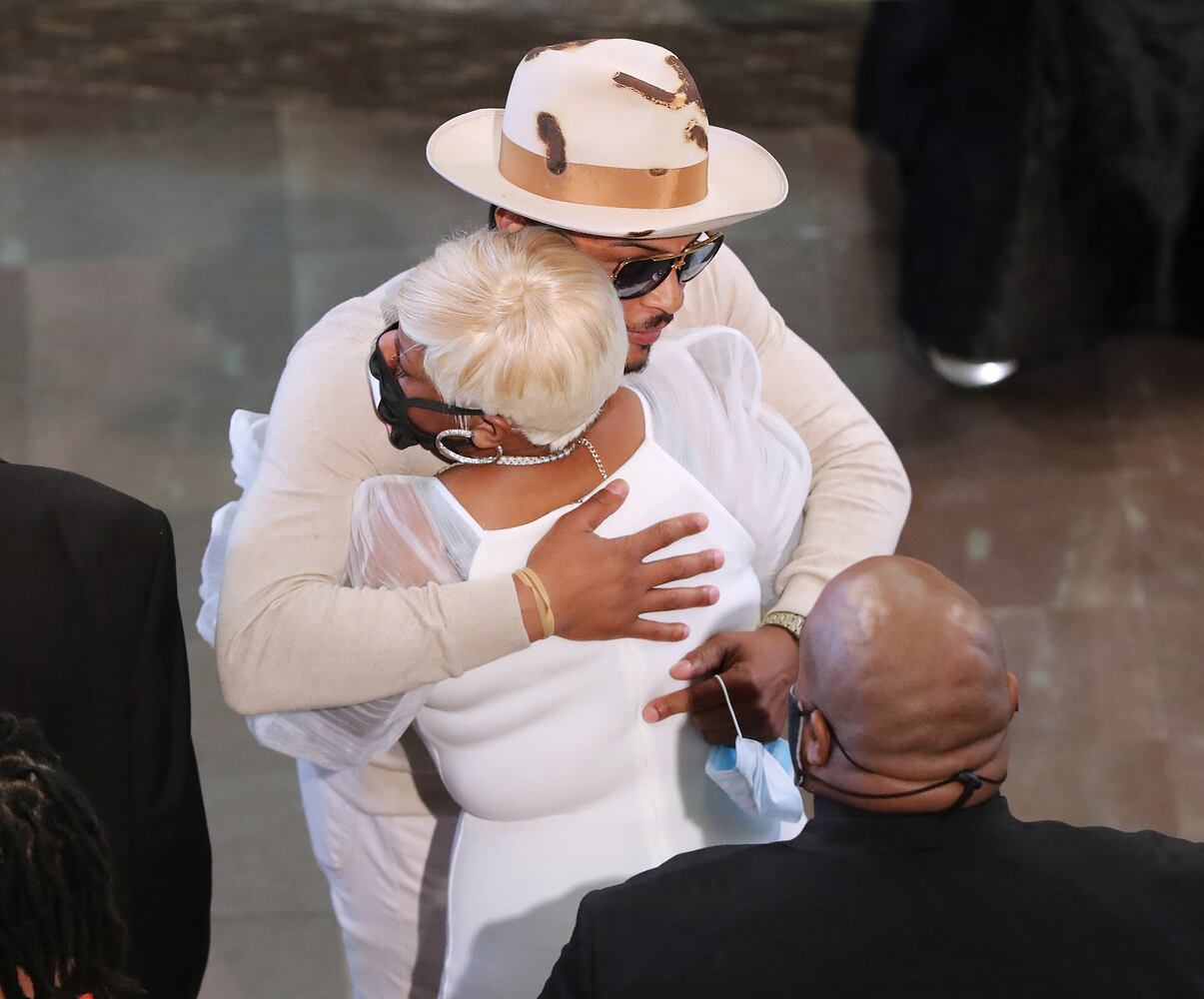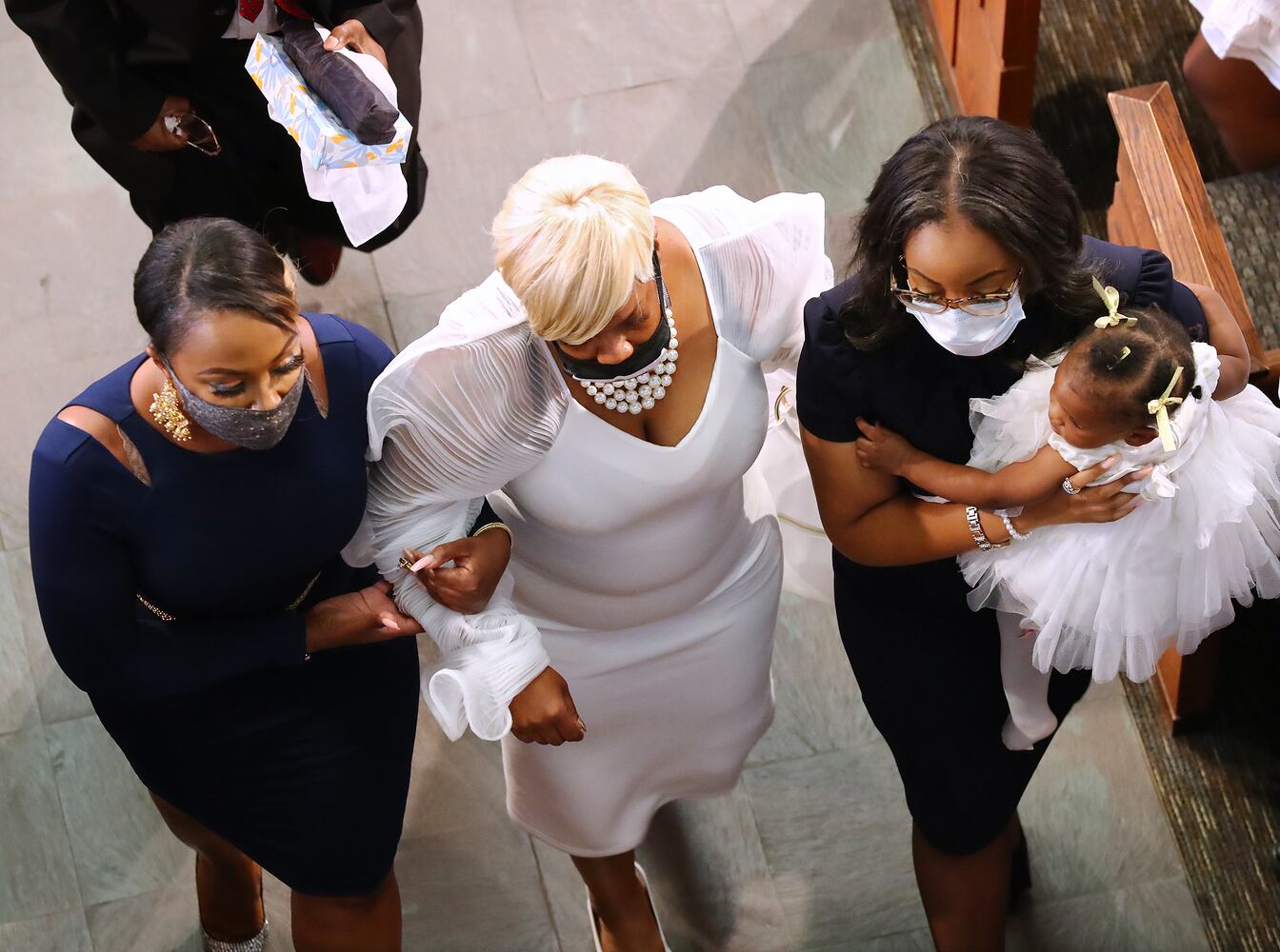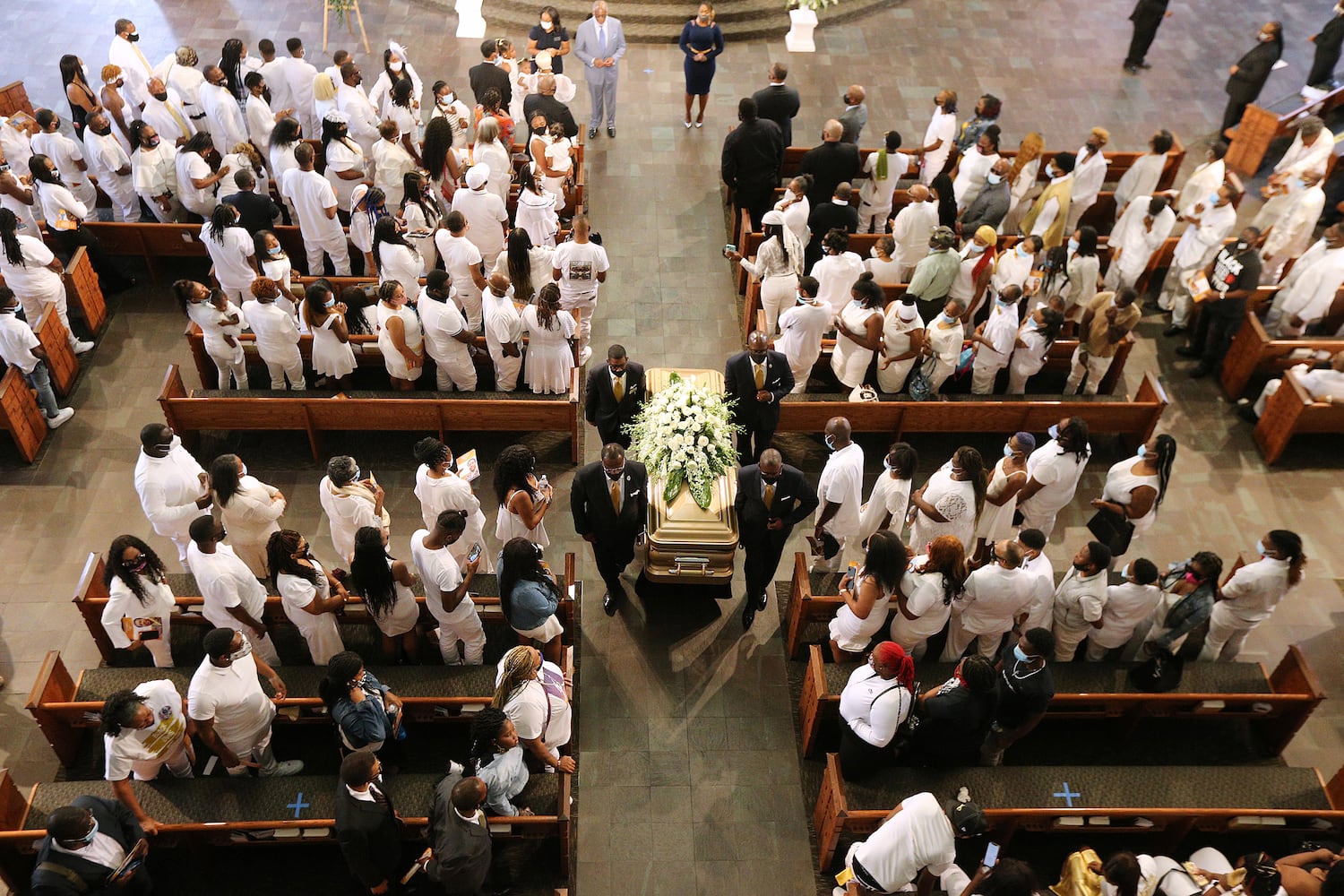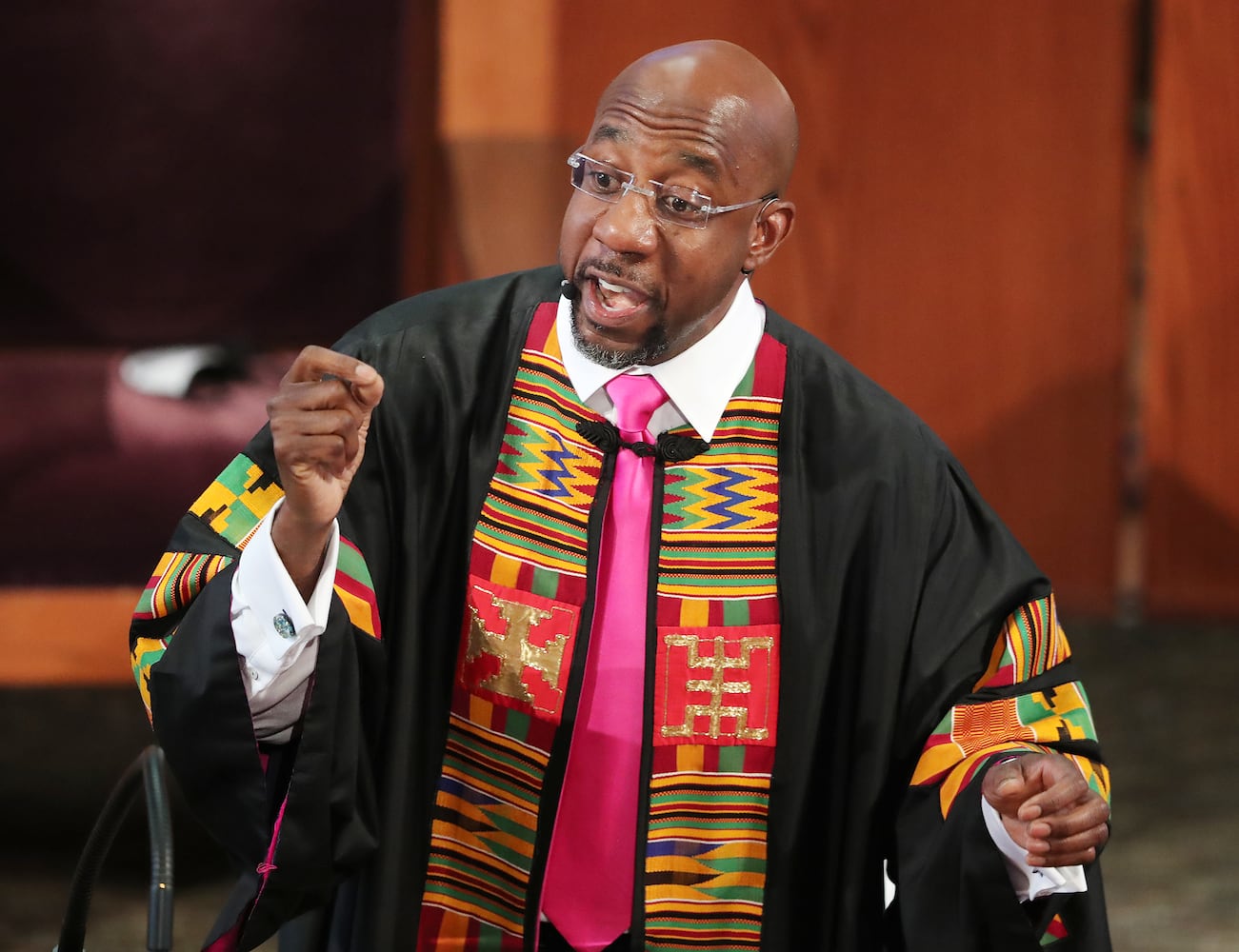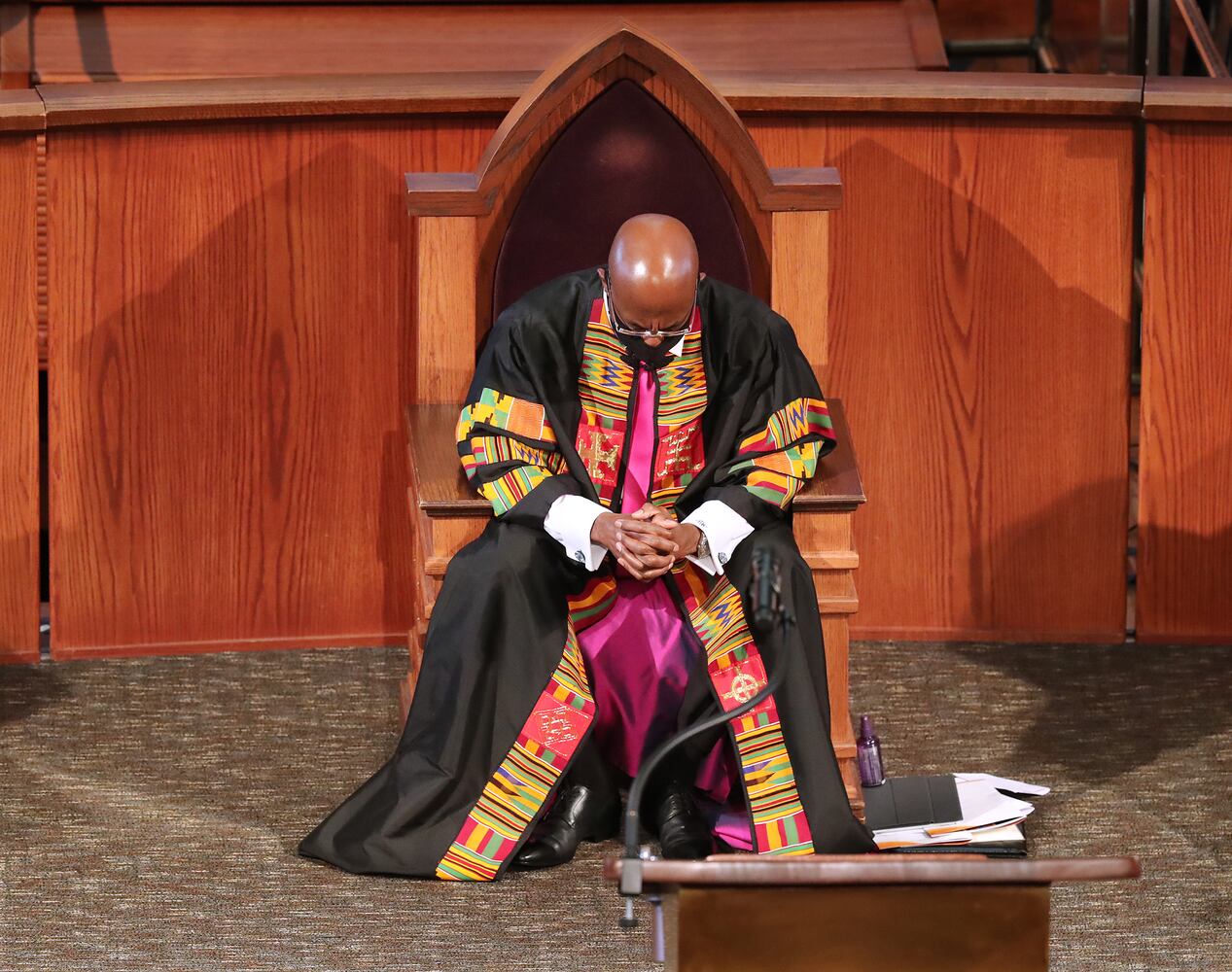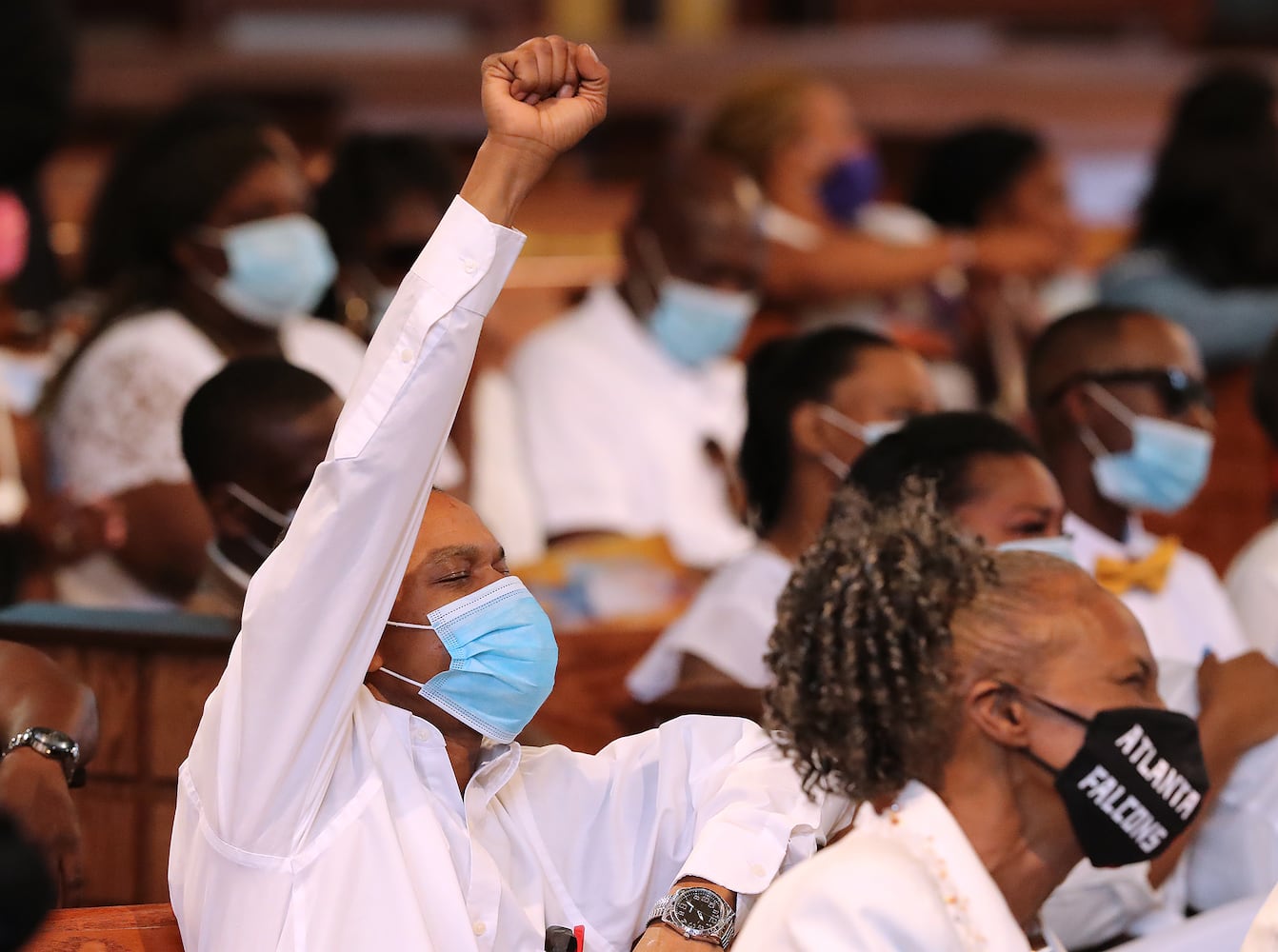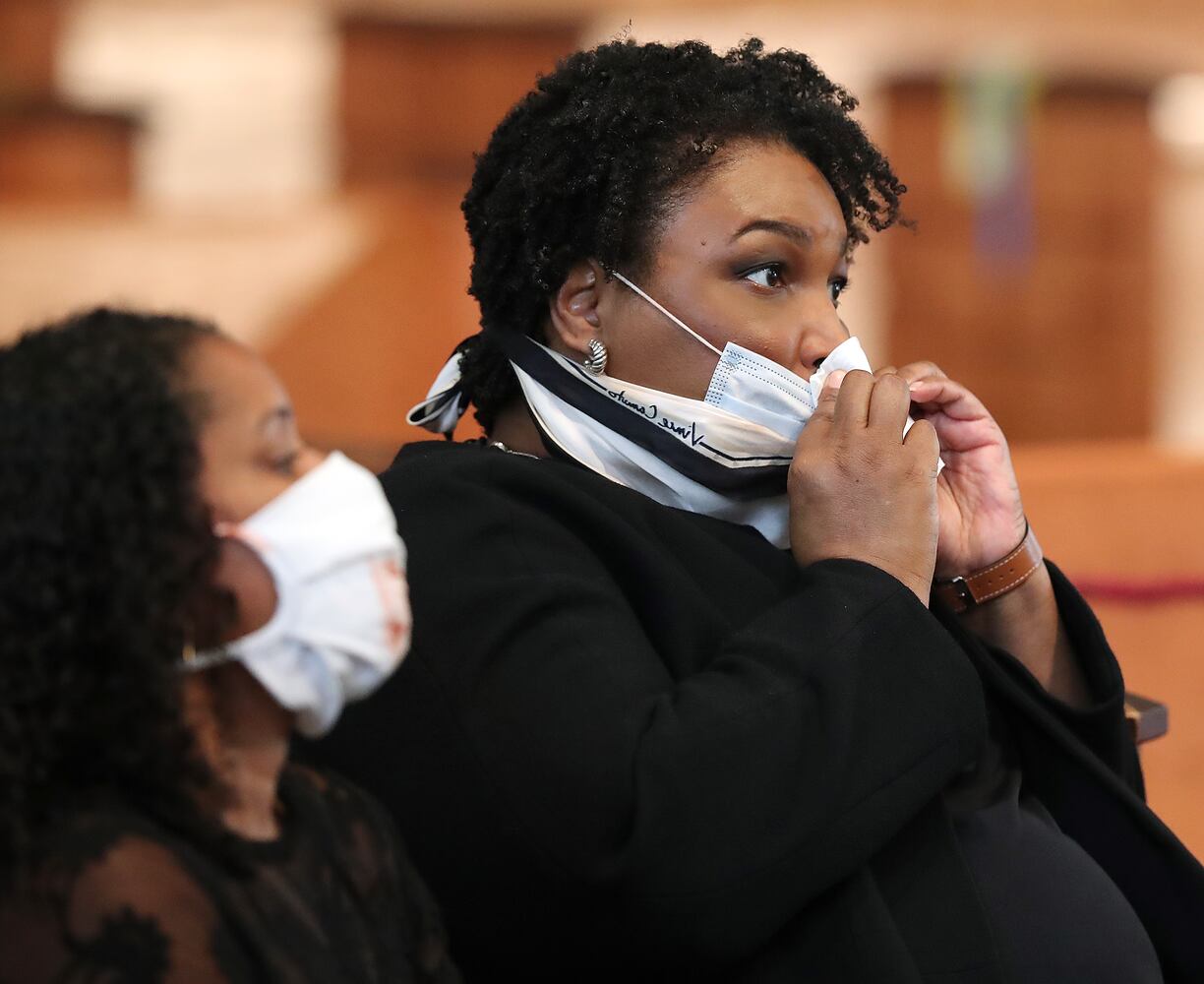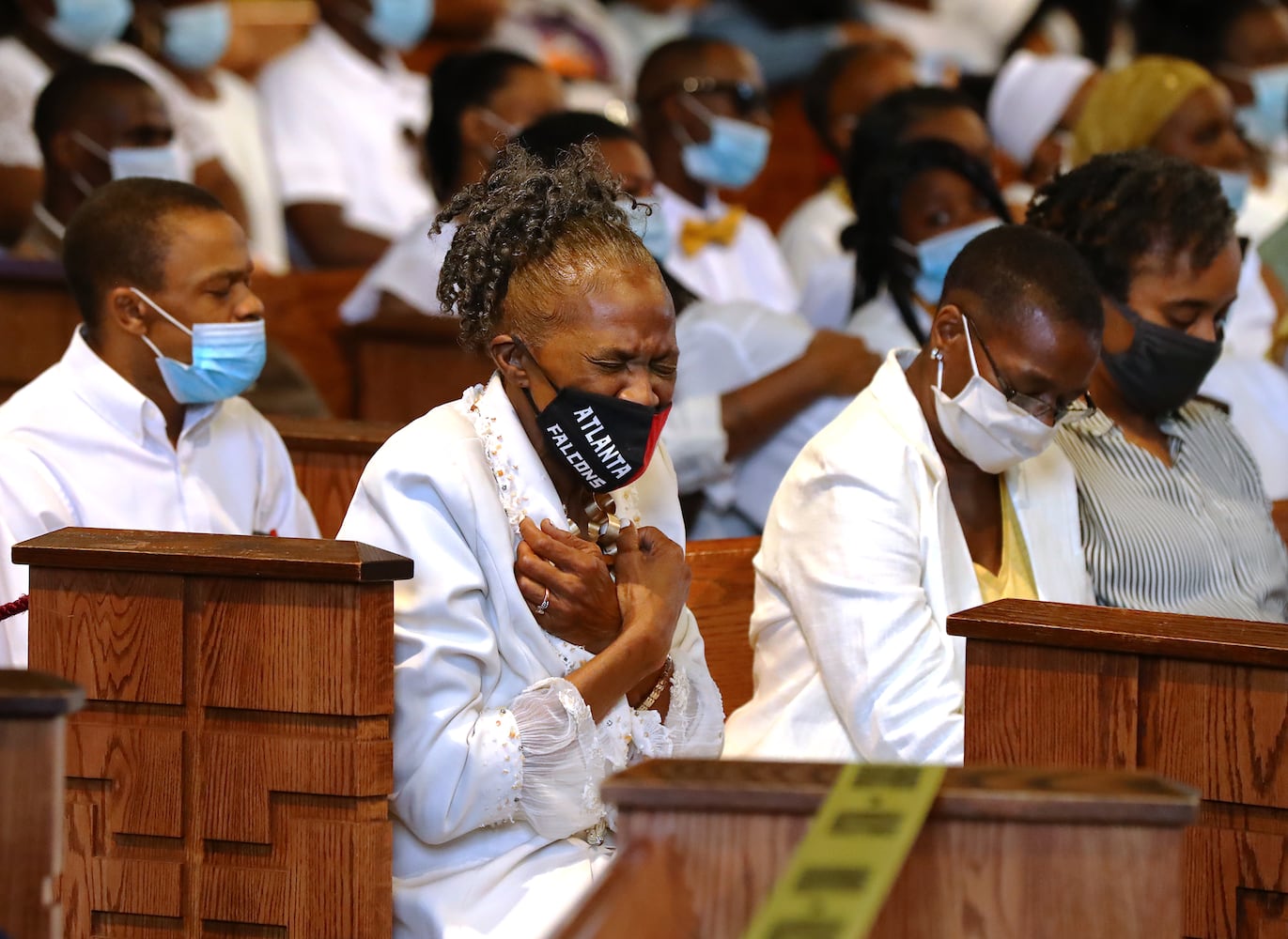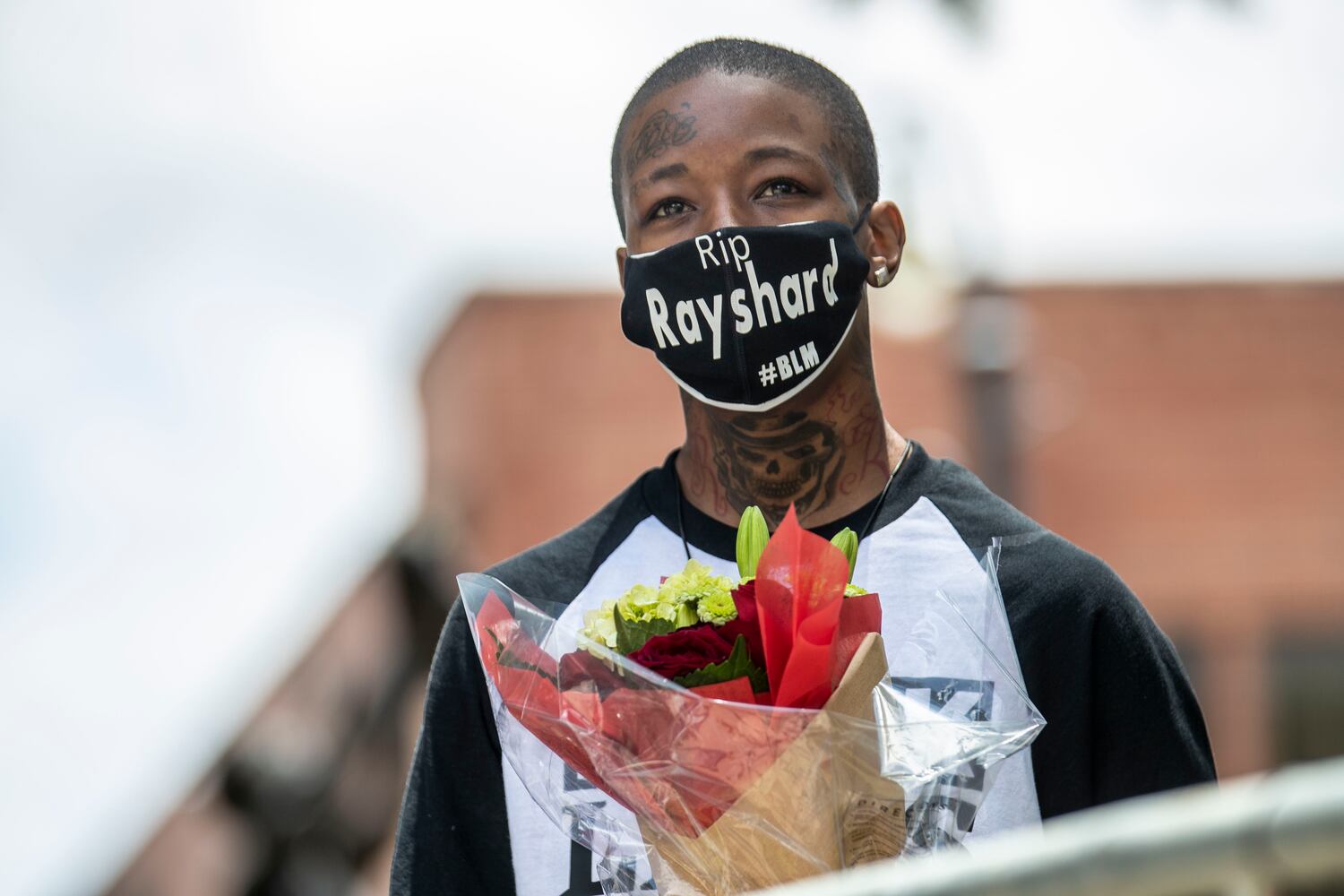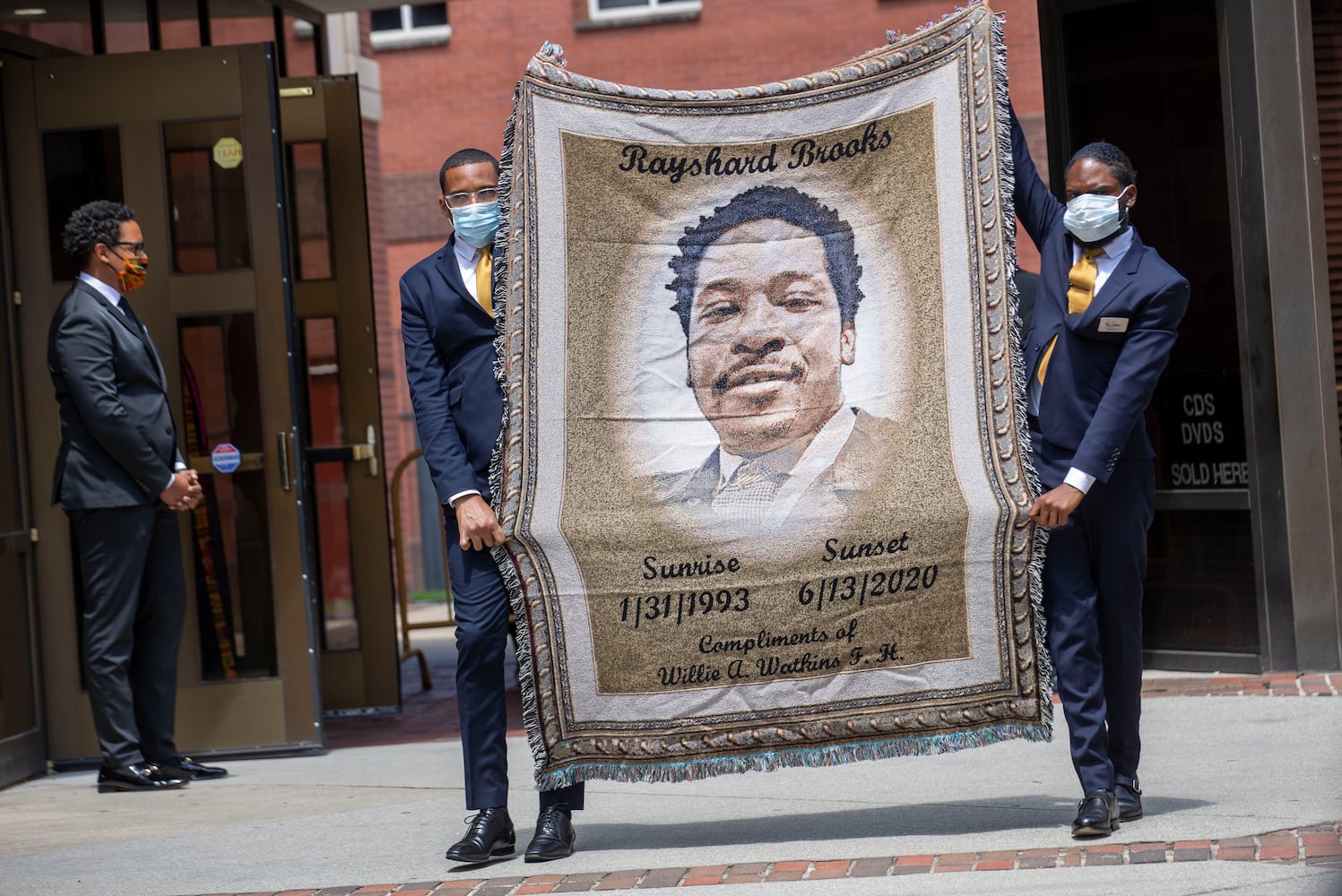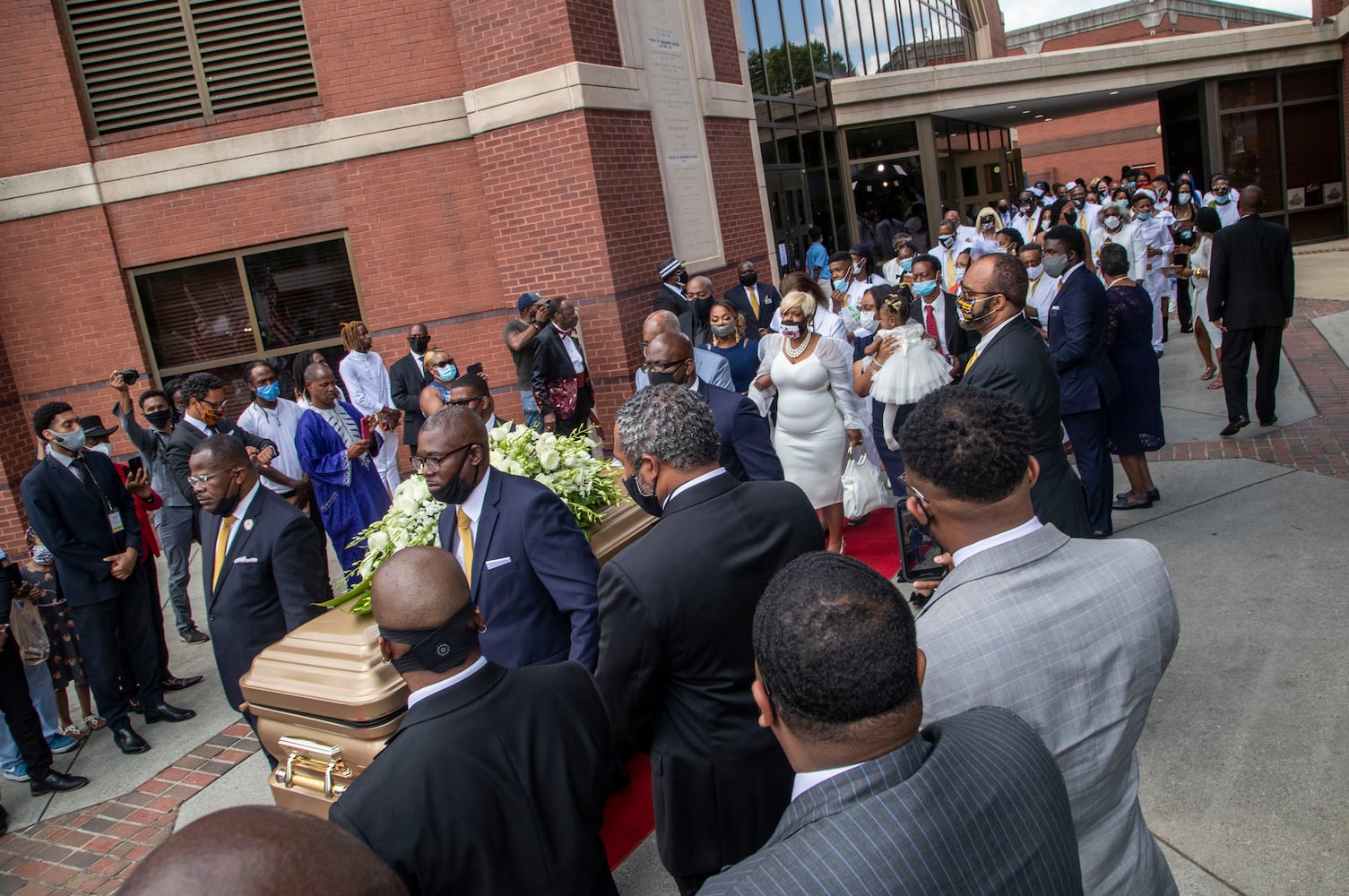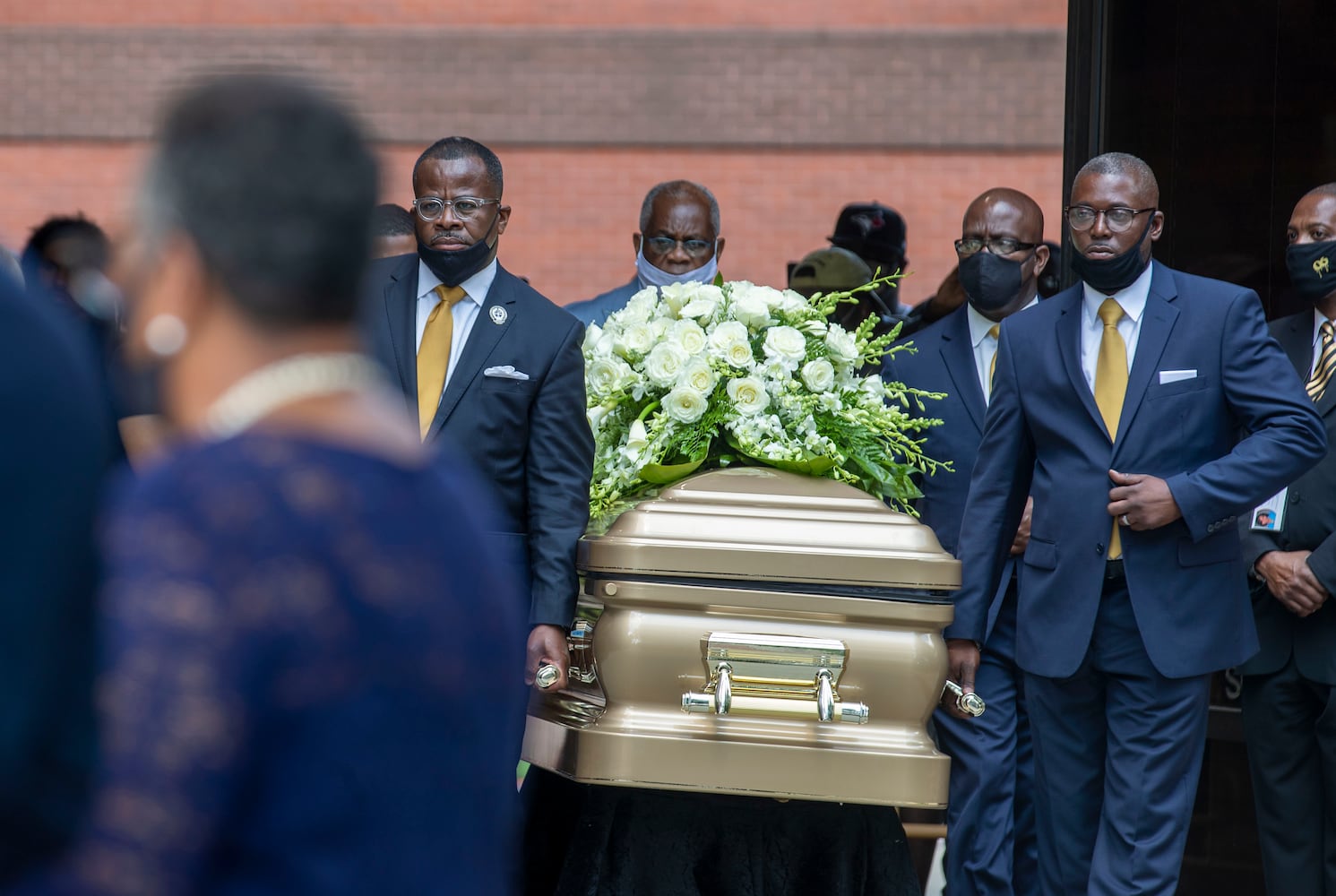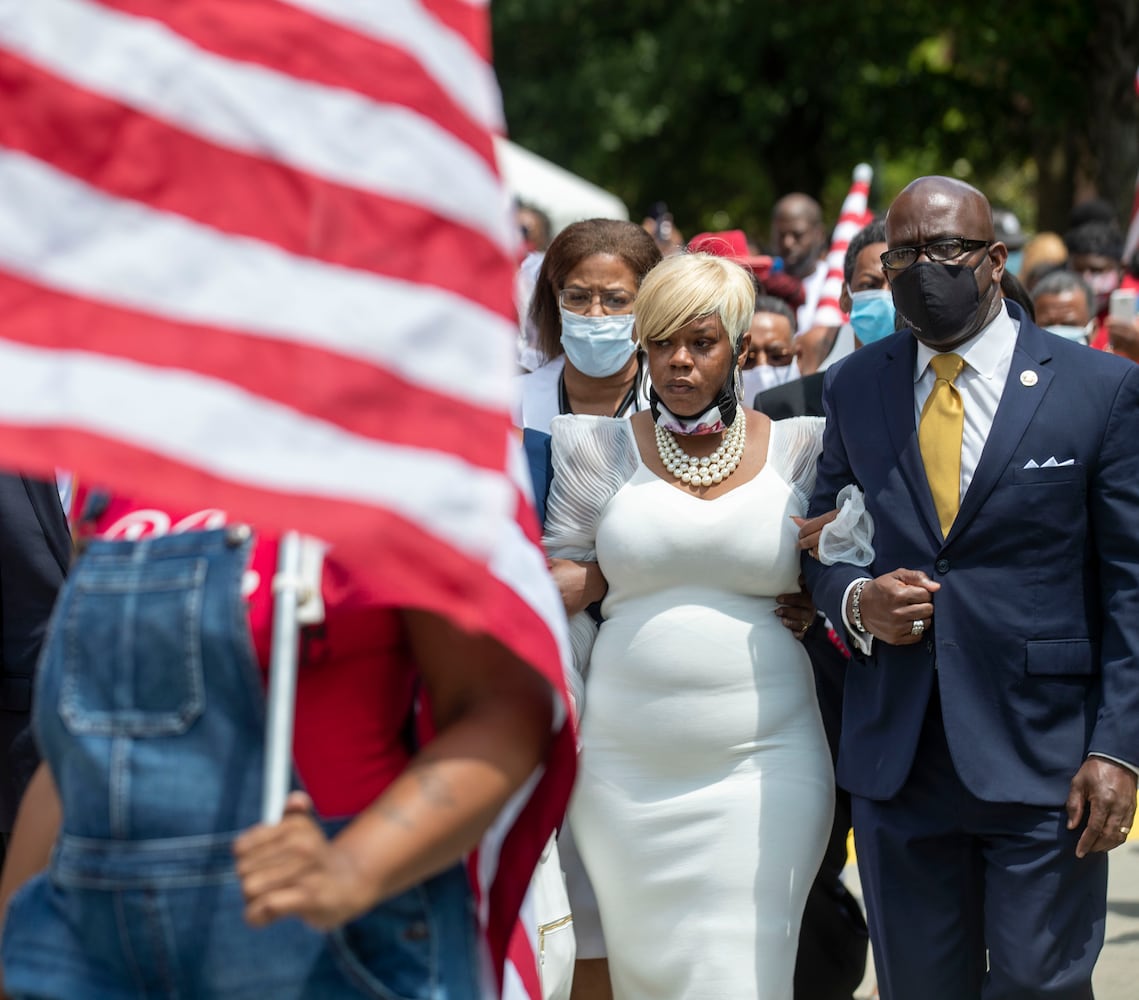Standing in the spiritual spot that her father, grandfather and great-grandfather preached, Bernice King ticked off a list of names that have recently and tragically become all too familiar.
Ahmaud Arbery.
Breonna Taylor.
George Floyd.
And finally, the name of the man of whose casket she preached over — Rayshard Brooks.
“We should not be here today,” King said. “This did not have to happen to Rayshard. There are so many ways that Friday, June 12 could have ended and a police killing did not have to be one of them.”
Nearly two weeks after the 27-year-old Brooks was gunned down by an Atlanta police officer, and following days of protests, resignations, arrests and political turmoil, he was quietly laid to rest Tuesday at an invitation-only funeral at Ebenezer Baptist Church.
Brooks’ death followed that of several other African Americans killed by police officers or white vigilantes in recent weeks, sparking waves of protests across the country against police brutality and racial inequality.
At 1 p.m., the Brooks family, dressed in white and most of them wearing white masks — or black masks emblazoned with Black Lives Matter — filed into the church. A saxophonist soloed a mournful, but celebratory processional.
Sitting in the front row, Tomika Miller, Brooks’ widow, wore a black mask with a family photo on it showing Brooks and their children, Mekai, Blessing, Memory and Dream. Throughout the service, one of Miller’s infant daughters sat on her lap, a detail that King couldn’t help but notice.
It was 52 years ago that she sat on her mother’s lap in the old Ebenezer after her father, Martin Luther King Jr., had been assassinated.
“Having a father killed when I was only 5 years of age, my heart deeply grieves for Dream, Memory, Blessing and Mekai. I know the pain of growing up without a father,” King said. “Rayshard Brooks’ life matters and he should have been able to live and watch his children grow into adulthood. The officers should have gone home without blood on their hands.”
On June 12, exactly 57 years after Medgar Evers was gunned down, 56 years after Nelson Mandela was sentenced to life in prison and a day before his daughter Blessing’s eighth birthday, Brooks fell asleep in the drive-thru of a southwest Atlanta Wendy’s.
After a 40-minute conversation with two Atlanta police officers, Garrett Rolfe and Devin Brosnan, Brooks got into a scuffle when they tried to handcuff him. Rolfe fatally shot Brooks twice in the back and has been charged with felony murder. Brosnan was charged with aggravated assault and violating the oath of office.
In his eulogy, the Rev. Raphael Warnock, the pastor of Ebenezer, recounted being asked what it was like to preach in King’s pulpit following the May 25 death of George Floyd. Floyd was killed by a police officer in Minneapolis who held his knee on Floyd’s neck for several minutes while he was being videotaped.
“I said, ‘Well, it’s sort of like it was that Sunday I stood preaching in a hoodie following the killing of Trayvon Martin. Then Michael Brown and 12-year-old Tamir Rice playing on a playground. Oscar Grant, Sandra Bland, Eric Garner, Philando Castile, Laquan McDonald, Freddie Gray, Rekia Boyd, Natasha McKenna, Botham Jean, Breonna Taylor, and Ahmaud Arbery before George Floyd,’” said Warnock, naming African Americans killed in recent years.
“And while we were addressing the death of George Floyd, in no time flat, we found ourselves here again,” he added.
Brooks’ death came just three days after Floyd was buried. Floyd’s death set off a flurry of protests that hit almost every major city in America, including Atlanta. Most have been peaceful, but some turned violent.
Protesters set fire to the Wendy's where Brooks died.
Jymaco Brooks, a cousin of Brooks, told people to “throw away their grudges,” because “my cousin didn’t live that way.”
The protests have launched a growing national discussion about police and racism, with many Americans calling for changes.
“I love my Black people,” Jymaco Brooks said. “I am proud of my Black people. And no matter how many times they try to beat us down, we still stand up as Black people.”
If anything, Bernice King said the manner of Brooks’ death is proof that Atlanta is “not immune to the problem of systemic and structural racism.”
“What’s especially troubling about this killing of an unarmed man is that this time it hit our home base. This happened in Atlanta – the city that is supposed to be too busy to hate. The city that is the home to civil and human rights,” King said.
“This happened in the city that has been known as the Black mecca,” she said. “This happened in the city whose grounds are known for America and the world’s warrior of peace, my daddy Martin Luther King Jr., who taught us that true peace is not merely the absence of tension, but it is the presence of justice — therefore there can be no peace in Atlanta nor anywhere in our nation where there is no justice. No justice, no peace.”
The church live-streamed the services, while also broadcasting it outside of the building for those who wanted to pay respects.
“We are encouraged by a great cloud of witnesses inside and outside,” Warnock said.
Brooks’ funeral was the first time that the church has been open since March, because of the coronavirus pandemic, he said.
Atlanta Mayor Keisha Lance Bottoms attended the services. Former Mayor Kasim Reed, voting rights advocate Stacey Abrams and Atlanta rapper and activist T.I. also attended the funeral, which was paid for by movie mogul Tyler Perry.
Kelly Price and Smokie Norful sang above Brooks’ golden casket which was covered with a huge spray of flowers and flanked by two giant bouquets. The Martin Luther King Sr. Choir and gospel recording artist Tamela Mann performed virtually.
Before Warnock’s eulogy, prayers were offered by diverse faith leaders including the Rev. Jeffery M. Ott of Our Lady of Lourdes Catholic Church; Rabbi Peter Berg of The Temple; the Rev. Neichelle R. Guidry, the dean of Spelman College’s Sisters Chapel; and Bishop Dale C. Bronner of Word of Faith Family Worship Cathedral.
Family and friends, some overcome with emotion, told stories about the first time he tried to eat lamb, how at the age of 27, he danced like an old man when he wasn’t dancing to “Old Town Road.”
They also talked about his struggles.
Ambrea Mikolajczyk, the owner of ARK Restoration & Construction, in northwest Ohio, said she hired “Ray” in the spring of 2019 and he worked for the company until last December. She told his daughters that Brooks “was in the midst of building something big, grand. A life anew.”
“Ray had overcome his circumstances. He was working hard toward becoming the best provider, caretaker, community builder, father, husband, son, brother, and relationship agent he could possibly be,” Mikolajczyk said. “The justice system and systemic racism that exists made it fairly impossible for him to try to live a prosperous life well after he had paid his debt. The system kept drawing him in, grabbing hold of him like quicksand. There is no growth without challenges.”
As the two-hourlong service came to a close, roughly 40 mourners, each hanging on Warnock’s every word, stood outside of the church paying their respects. For some, like 46-year-old Bonnie Haub, it was a moment to reflect.
“We figured this would be a way for us to think about what happened and honor his life,” Haub said.
Others, like Shaun McLean, hopes that Brook’s death brings more transparency from police departments.
“I don’t want to vilify police officers,” McLean said. “Some of my friends are officers and my dad’s a retired police officer, but there has to be a better understanding of proper procedures.”
At the end of the funeral, "Lift Every Voice and Sing," written in 1900 and now universally known as the "Negro National Anthem," was scheduled to be played.
But Brooks’ widow “said she did not want to end it sad,” said gospel singer Kurt Carr, before launching into a rousing rendition of “Through it All,” as pallbearers rolled Brooks’ golden casket out of the church.
“This country has become too accustomed and comfortable with black people dying,” Warnock said. “Black Lives Matter is just a way of saying see our humanity. We’re trying to stay alive and keep our families alive.”
Staff writer Courtney Kueppers contributed to this article.
Keep Reading
The Latest
Featured
